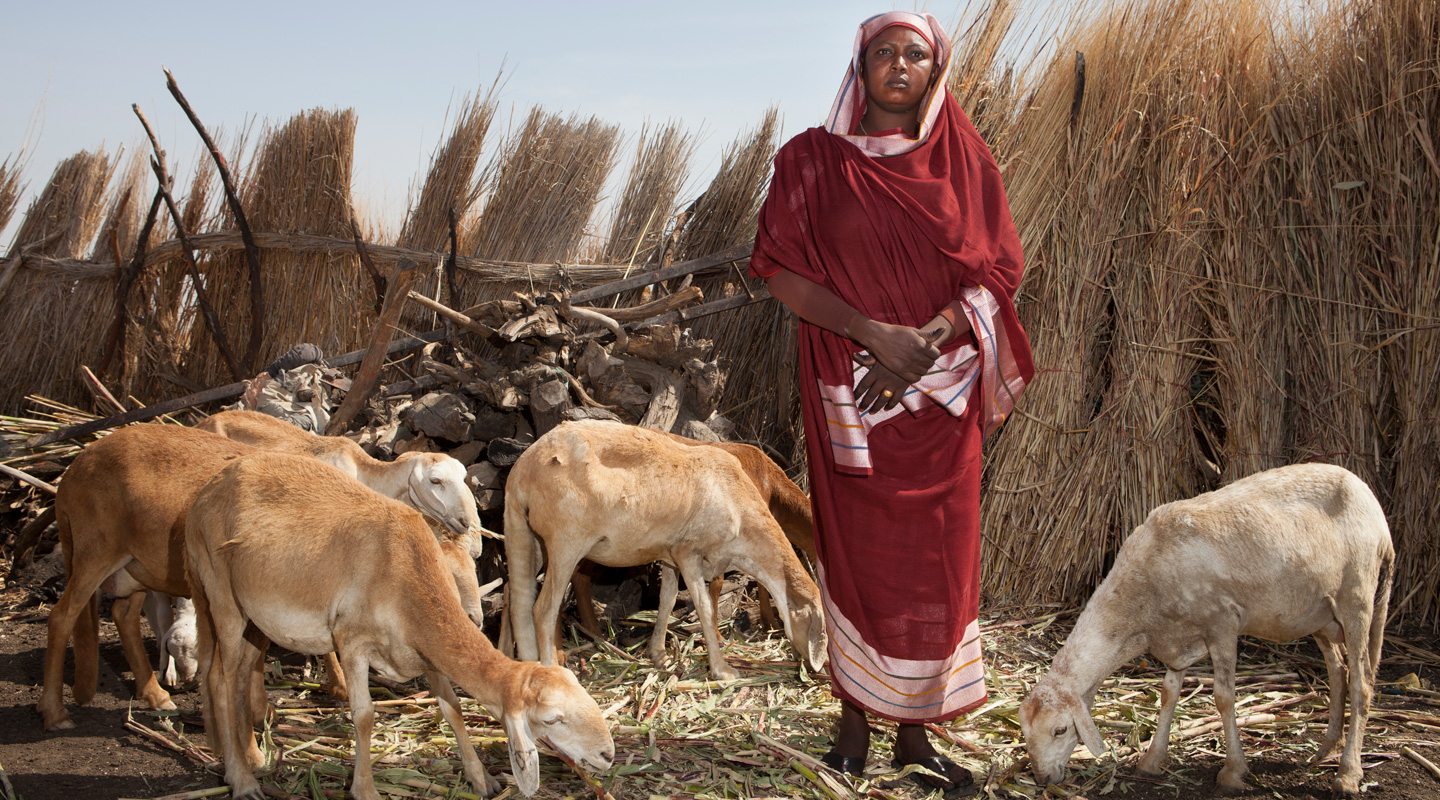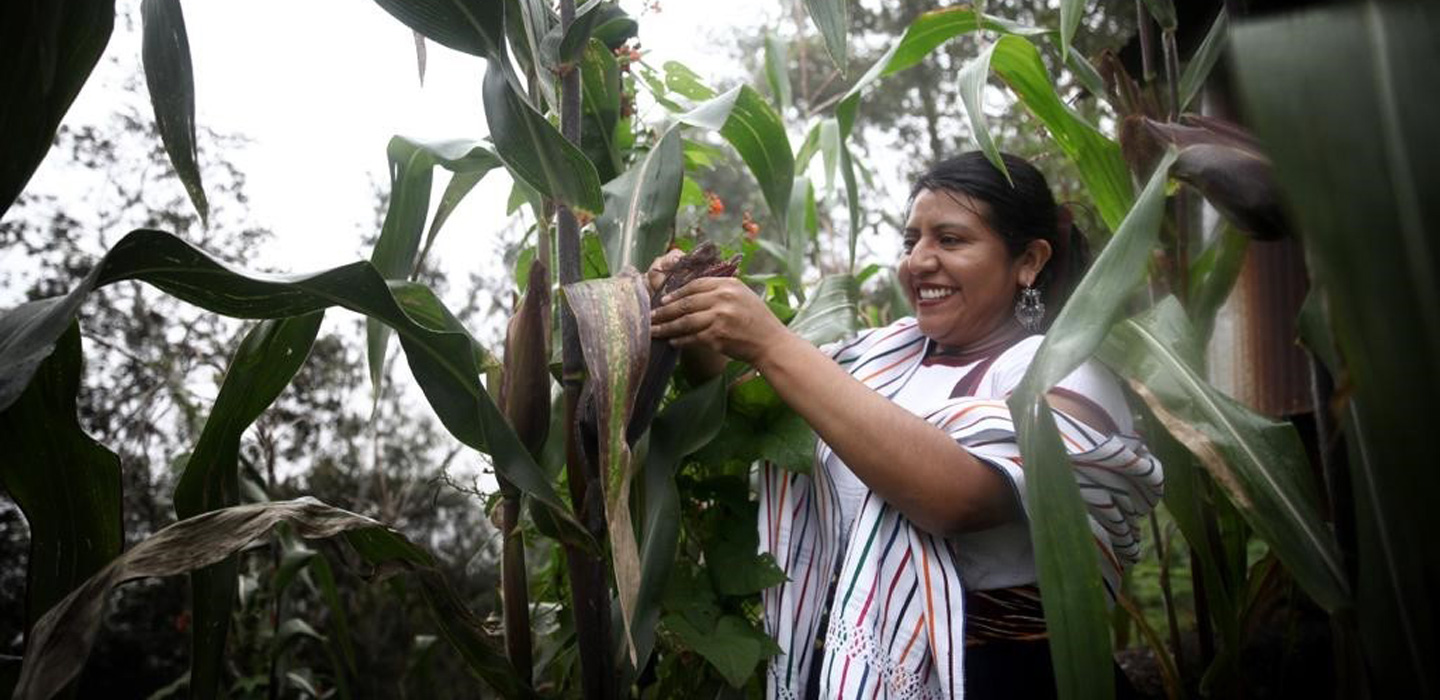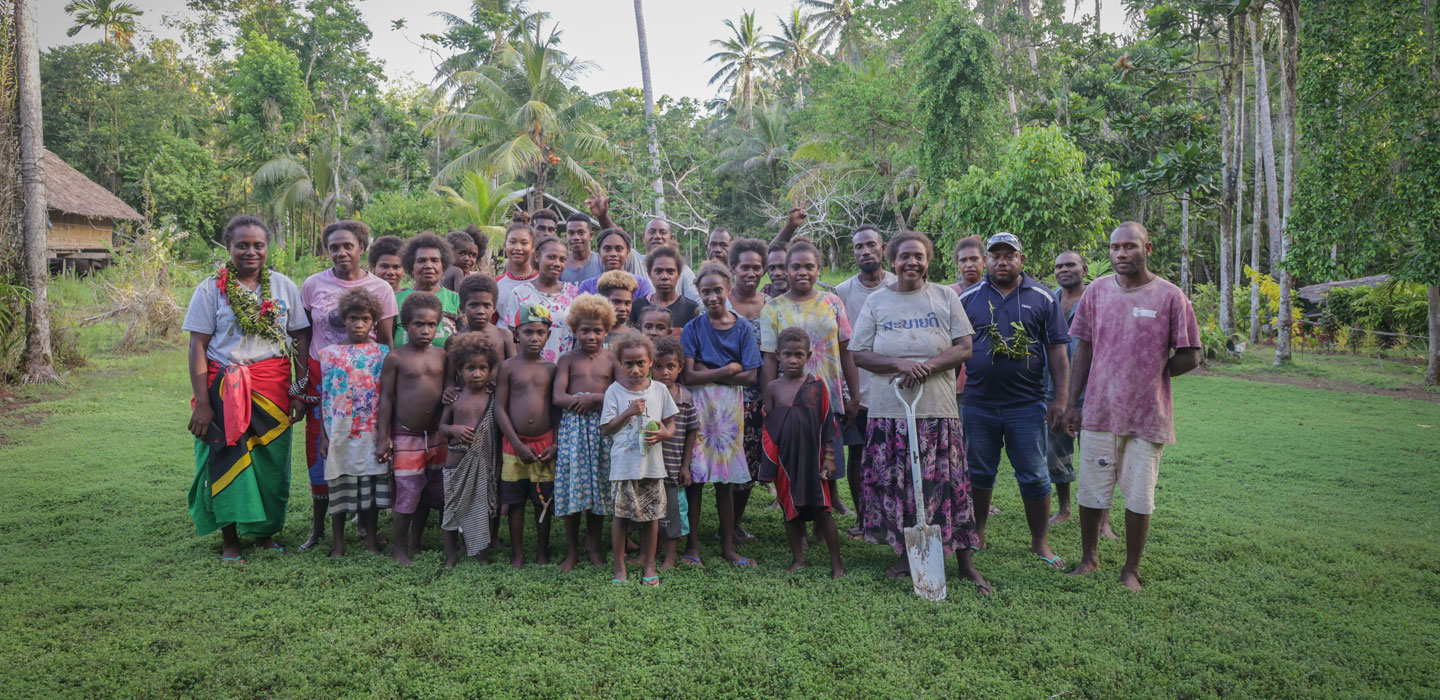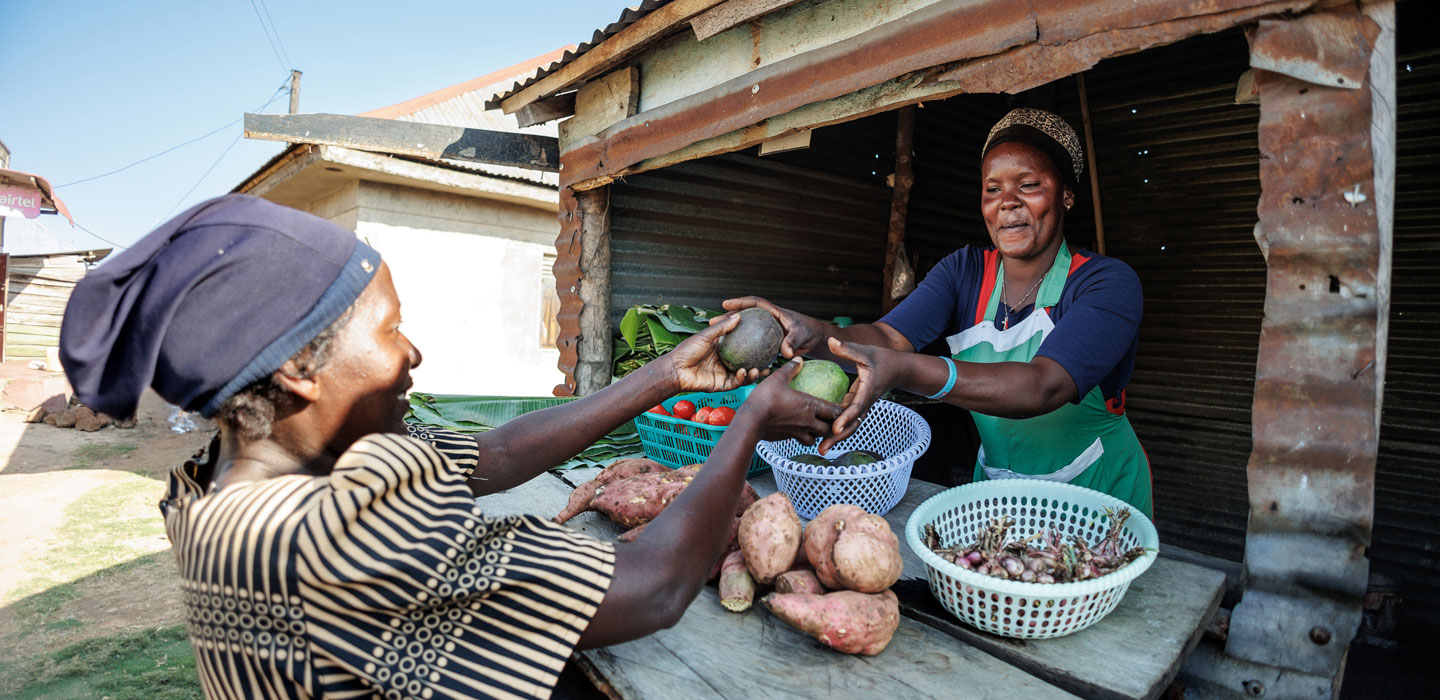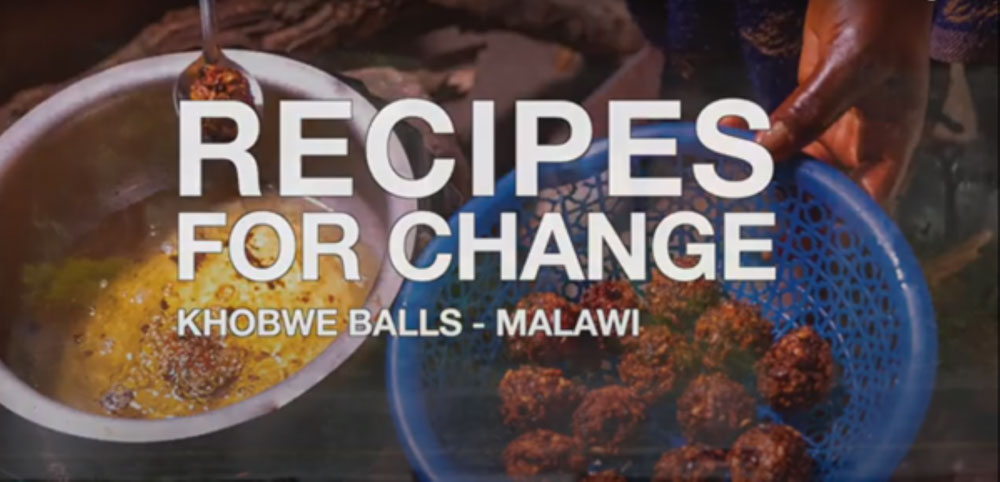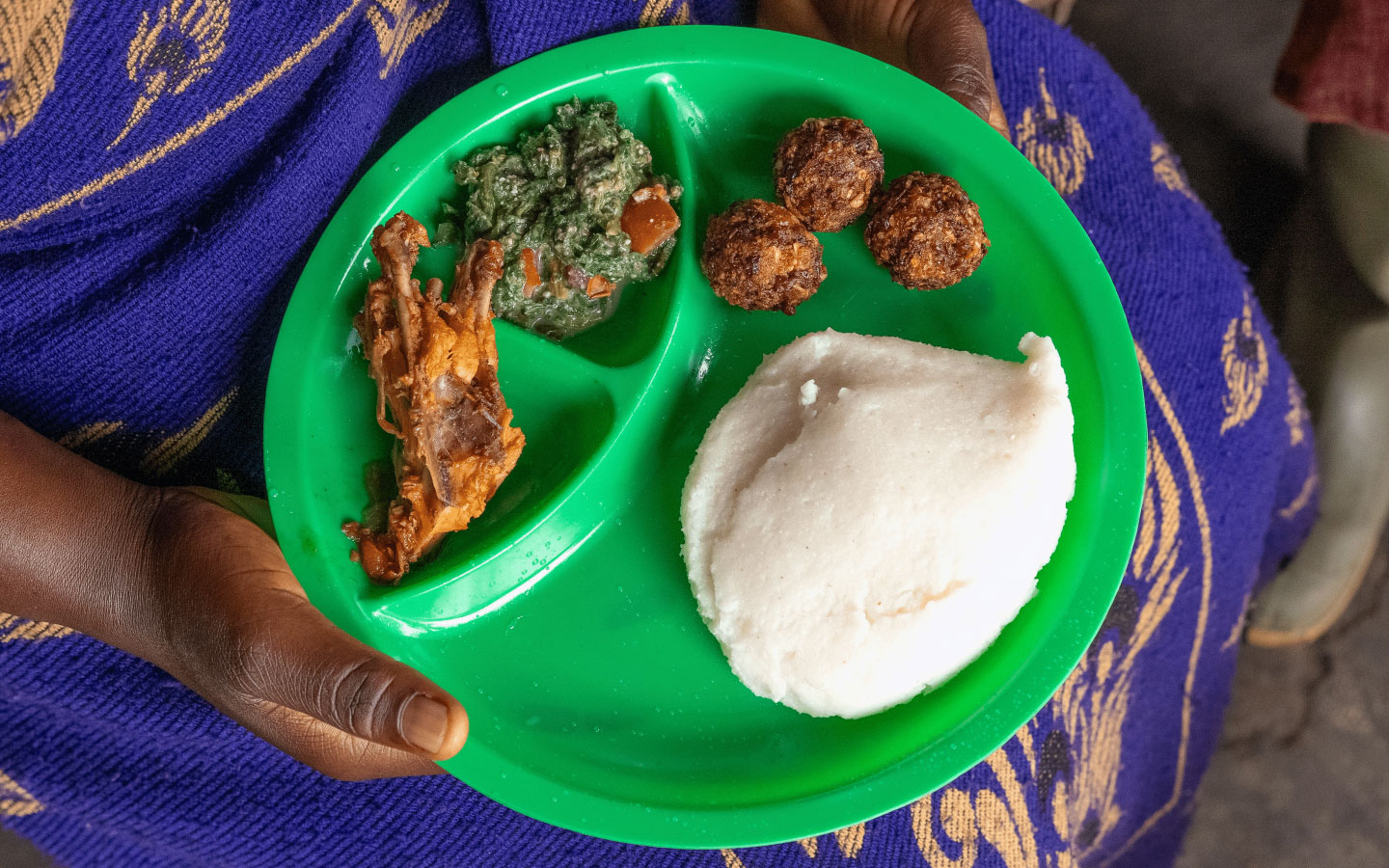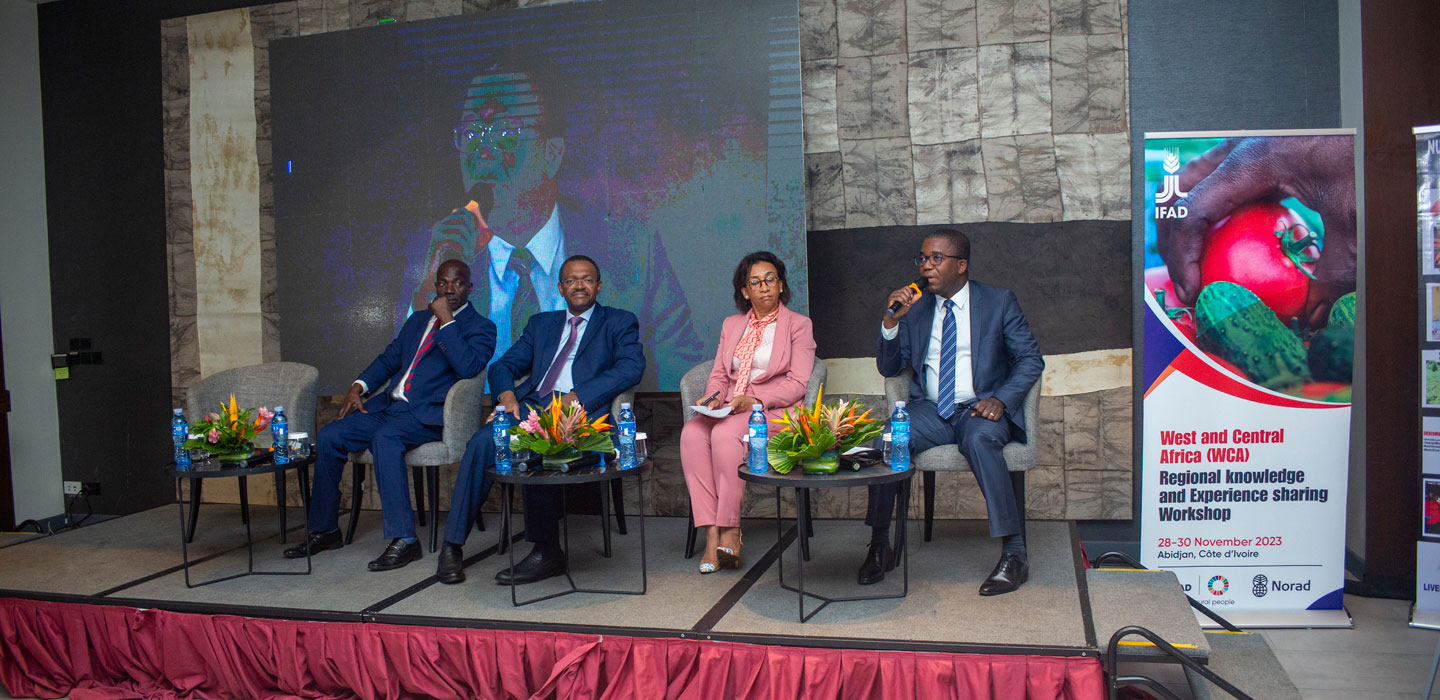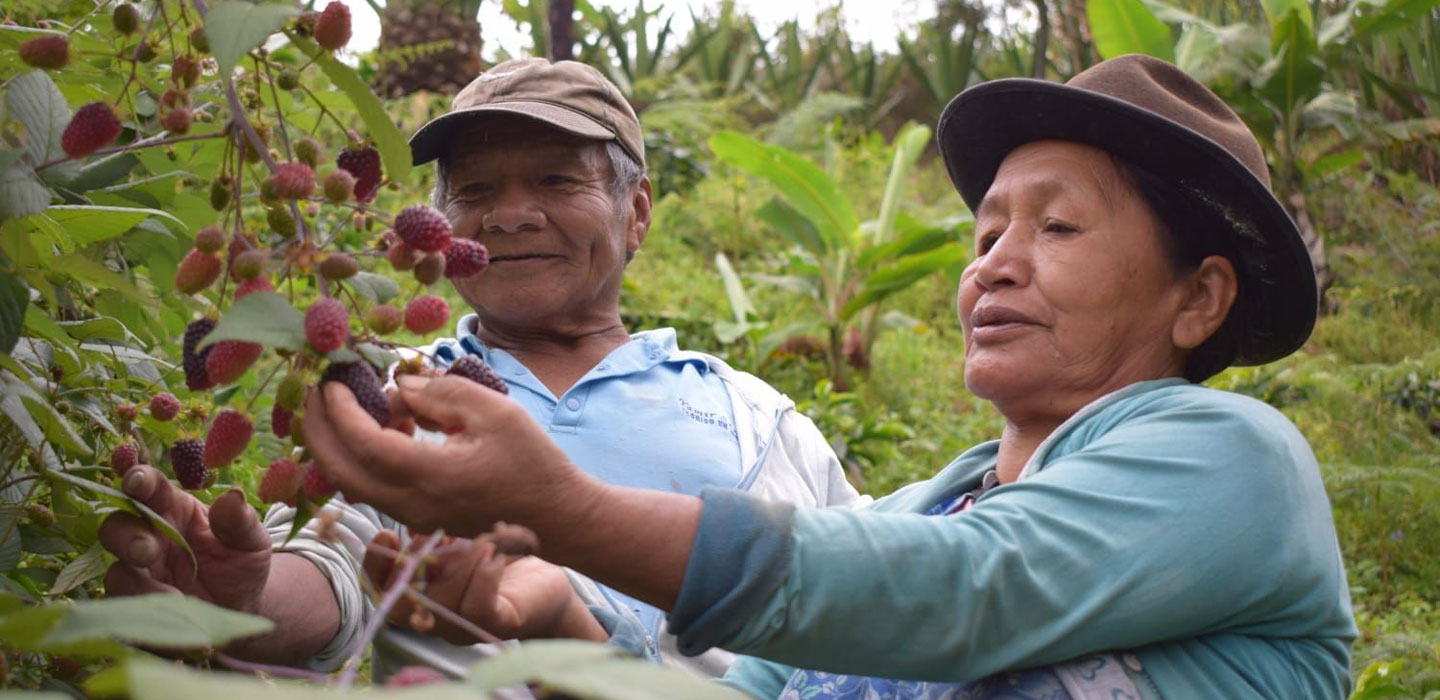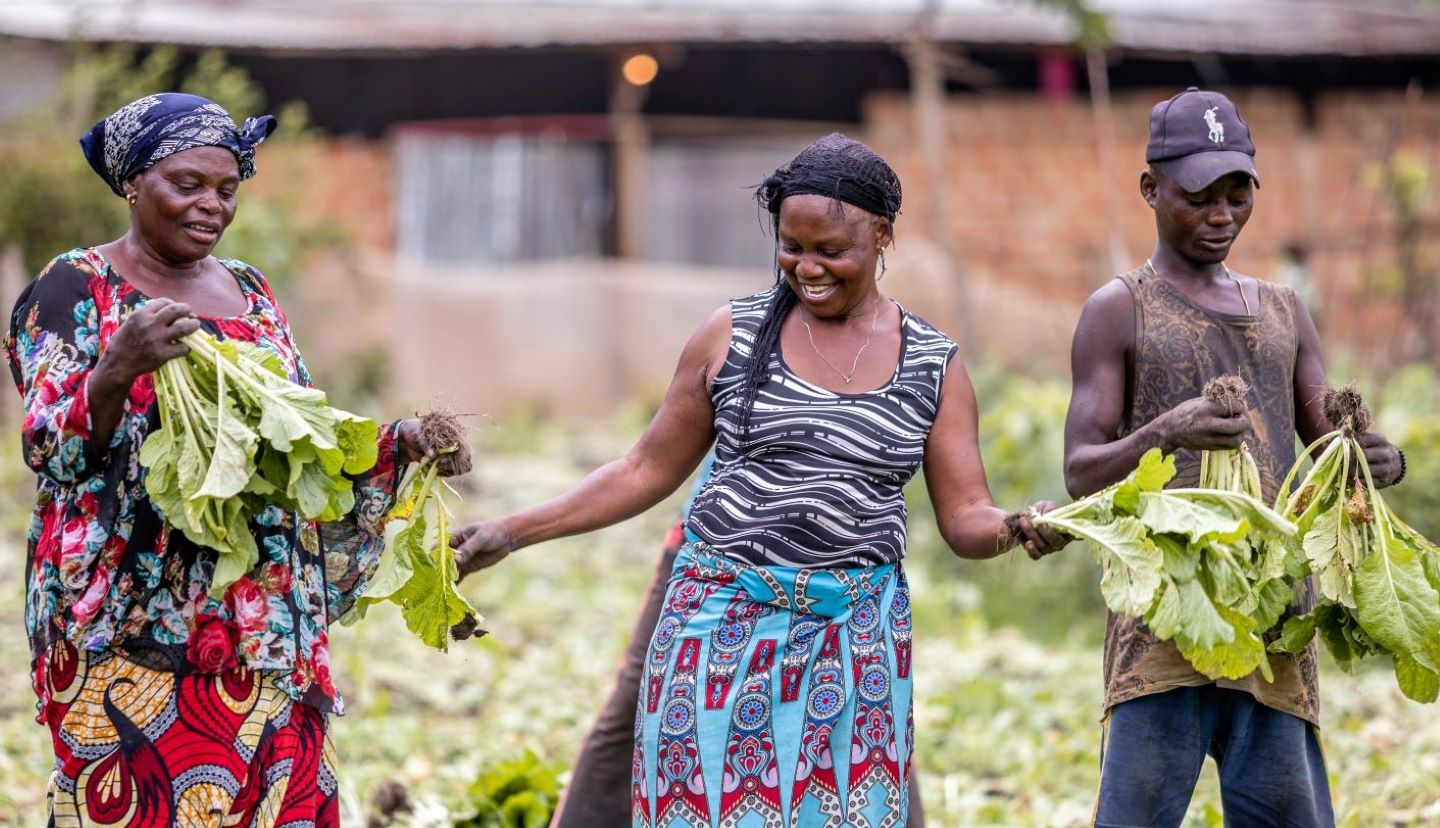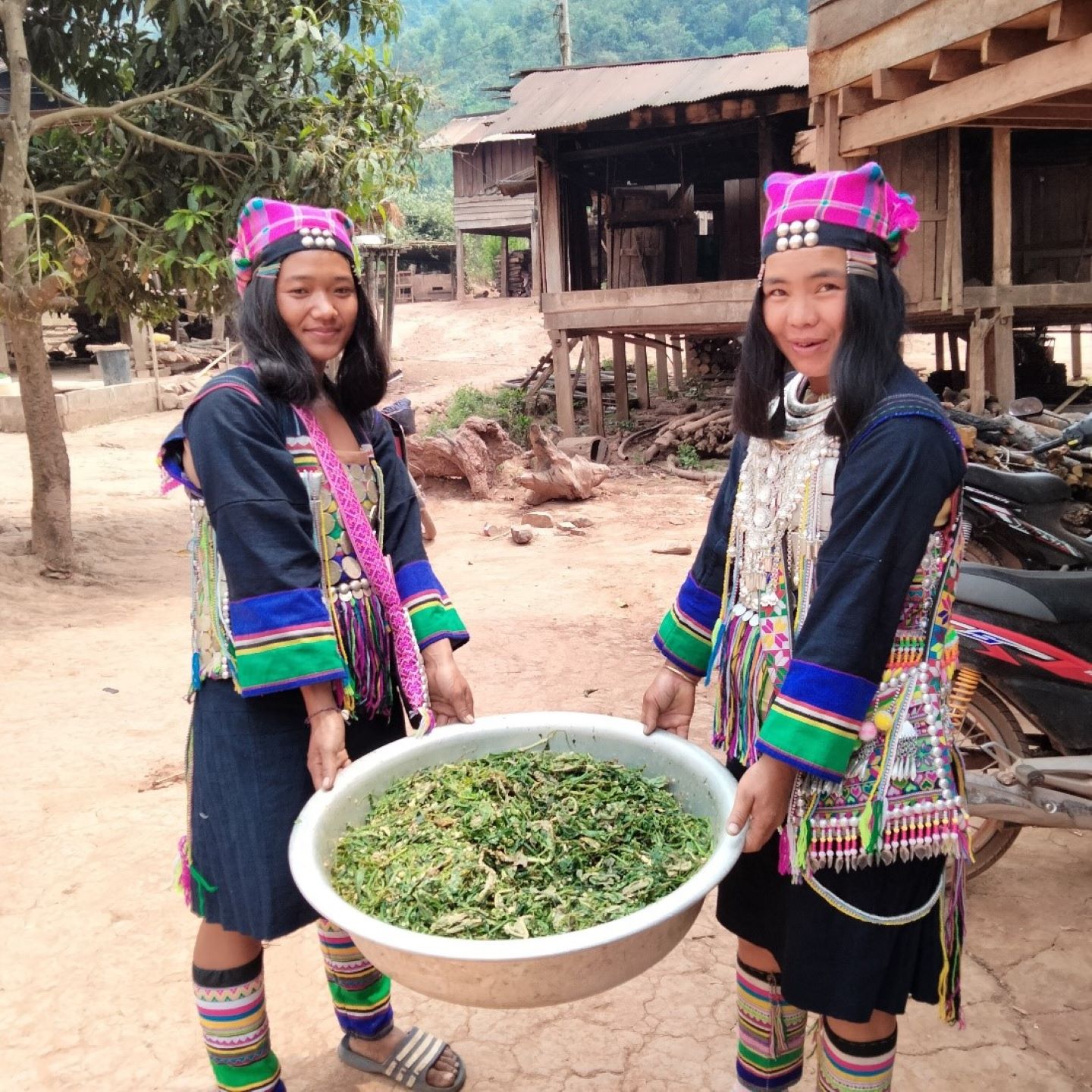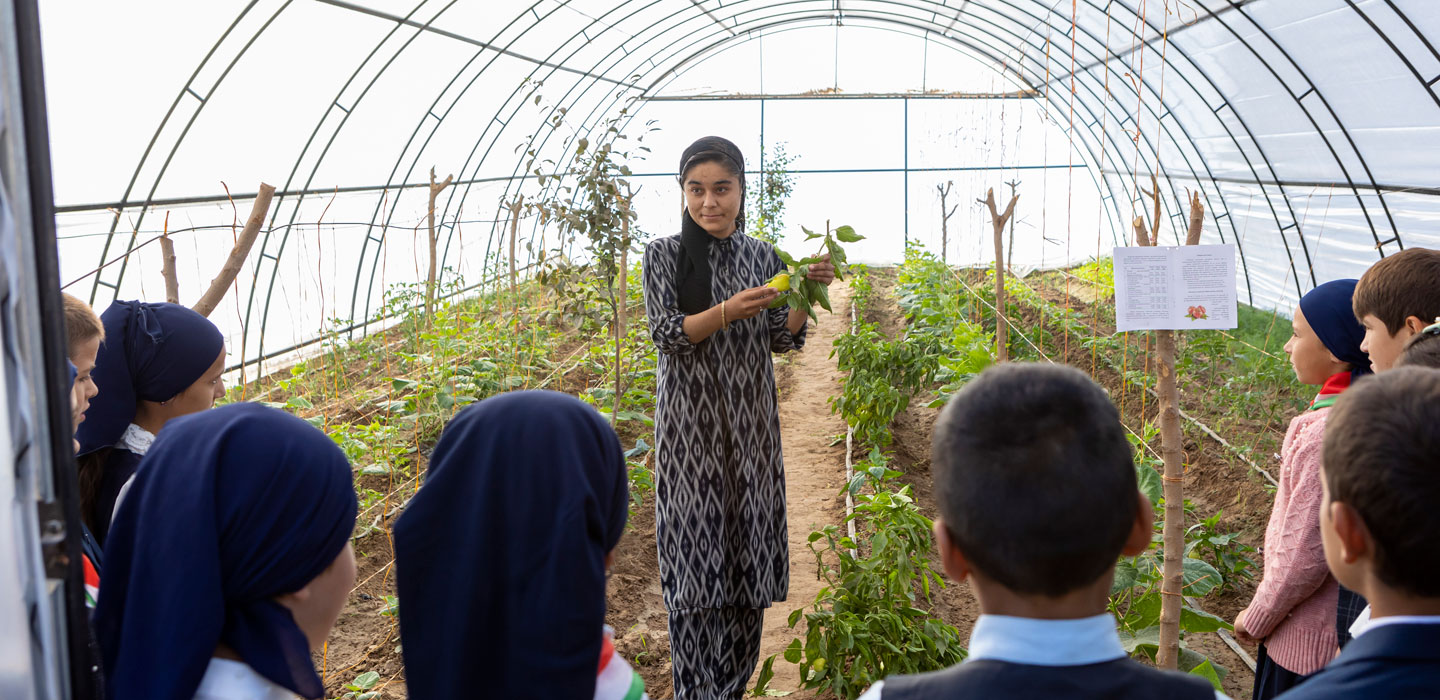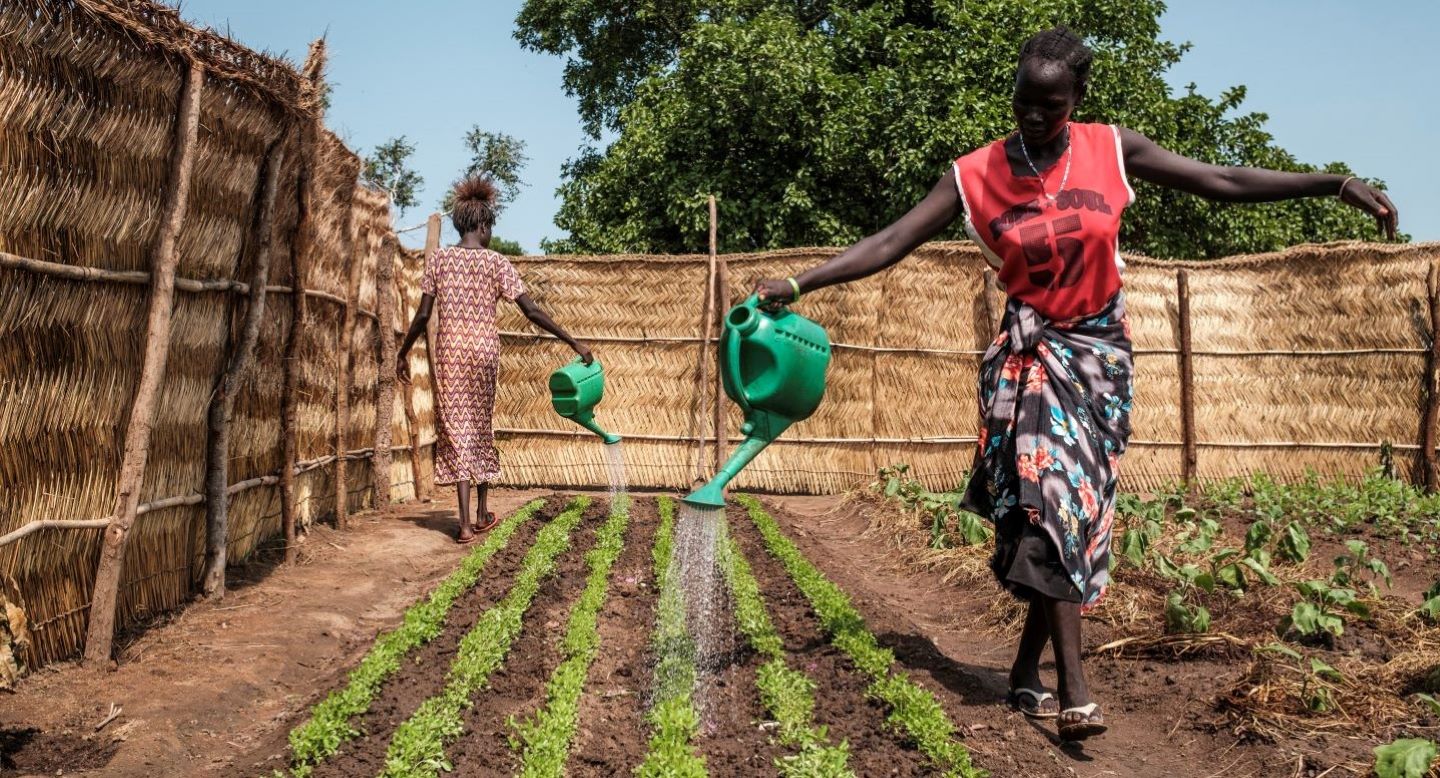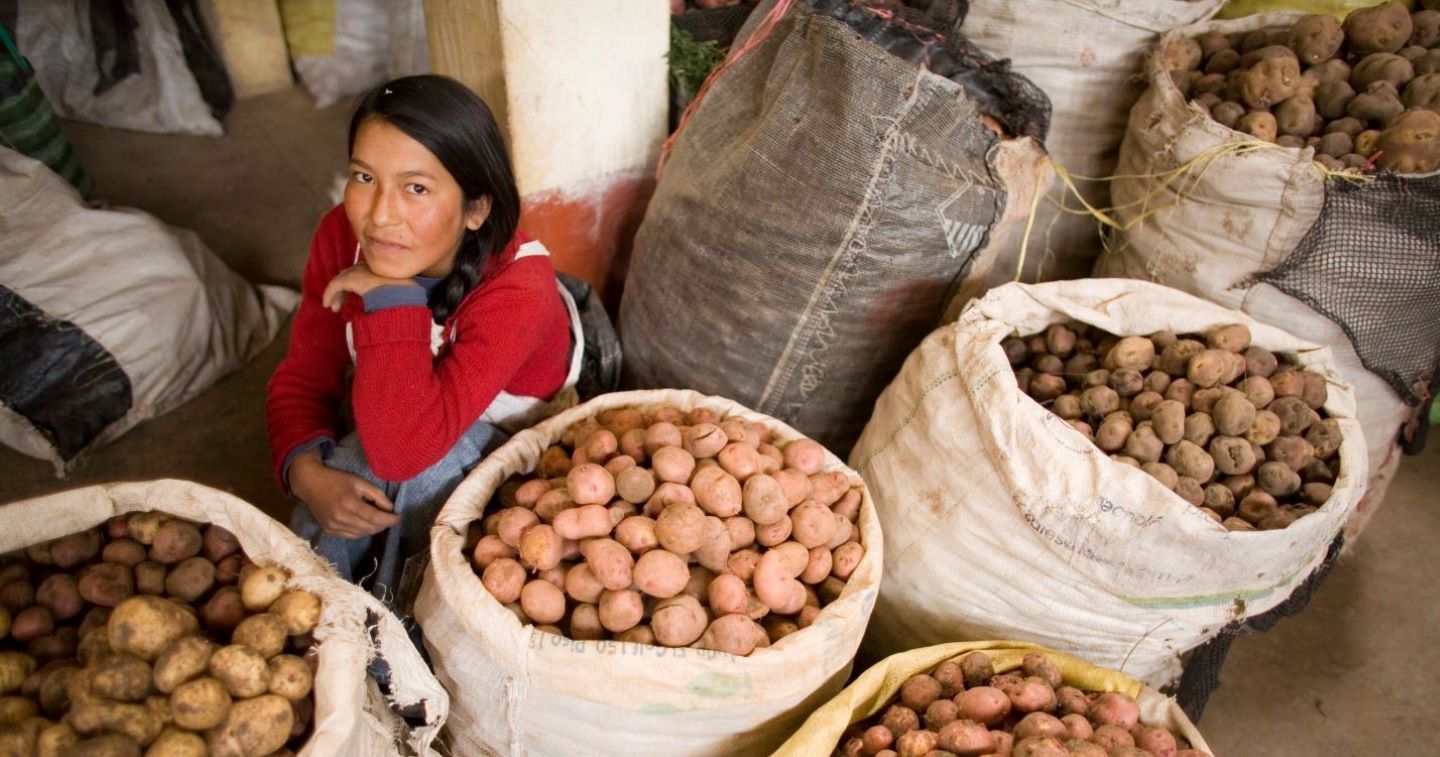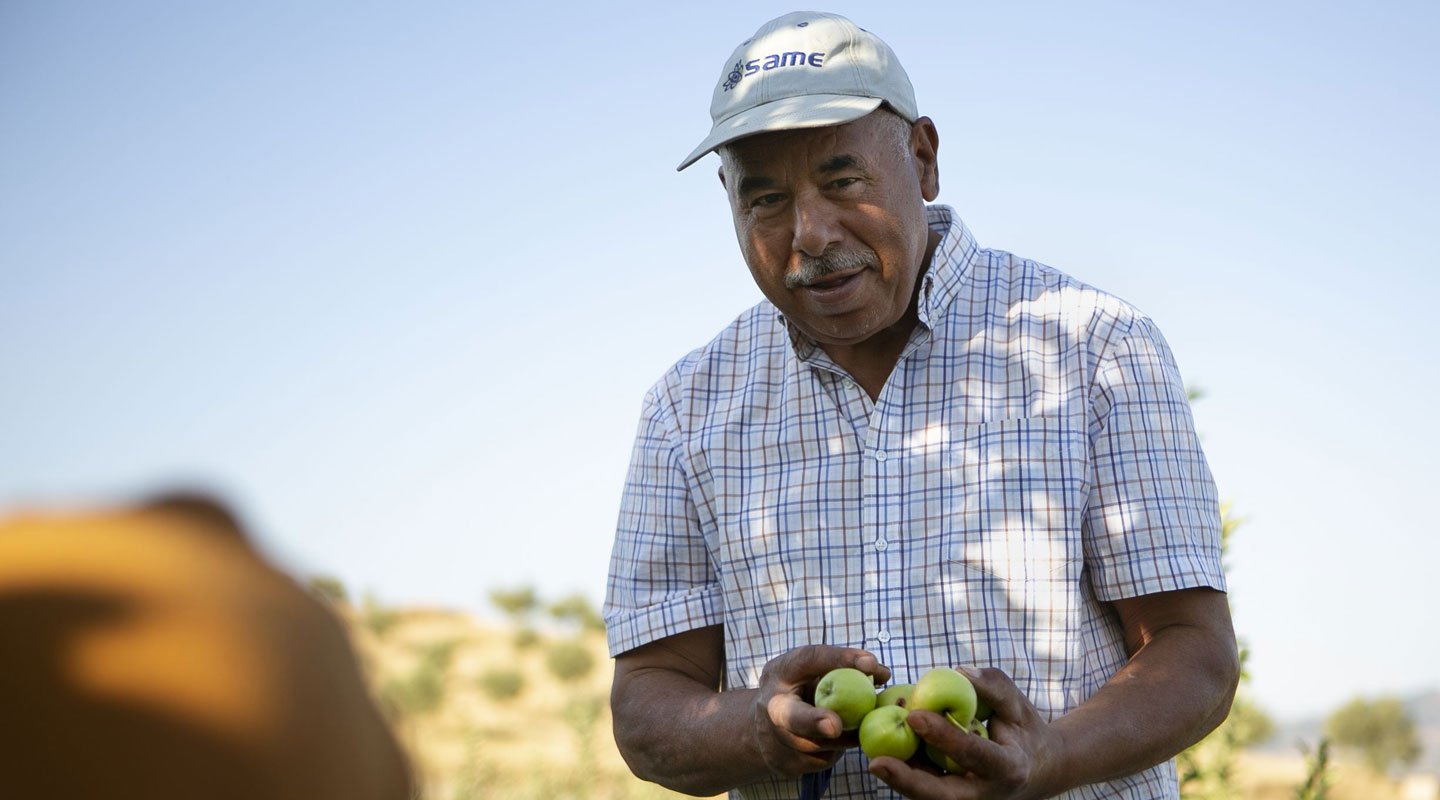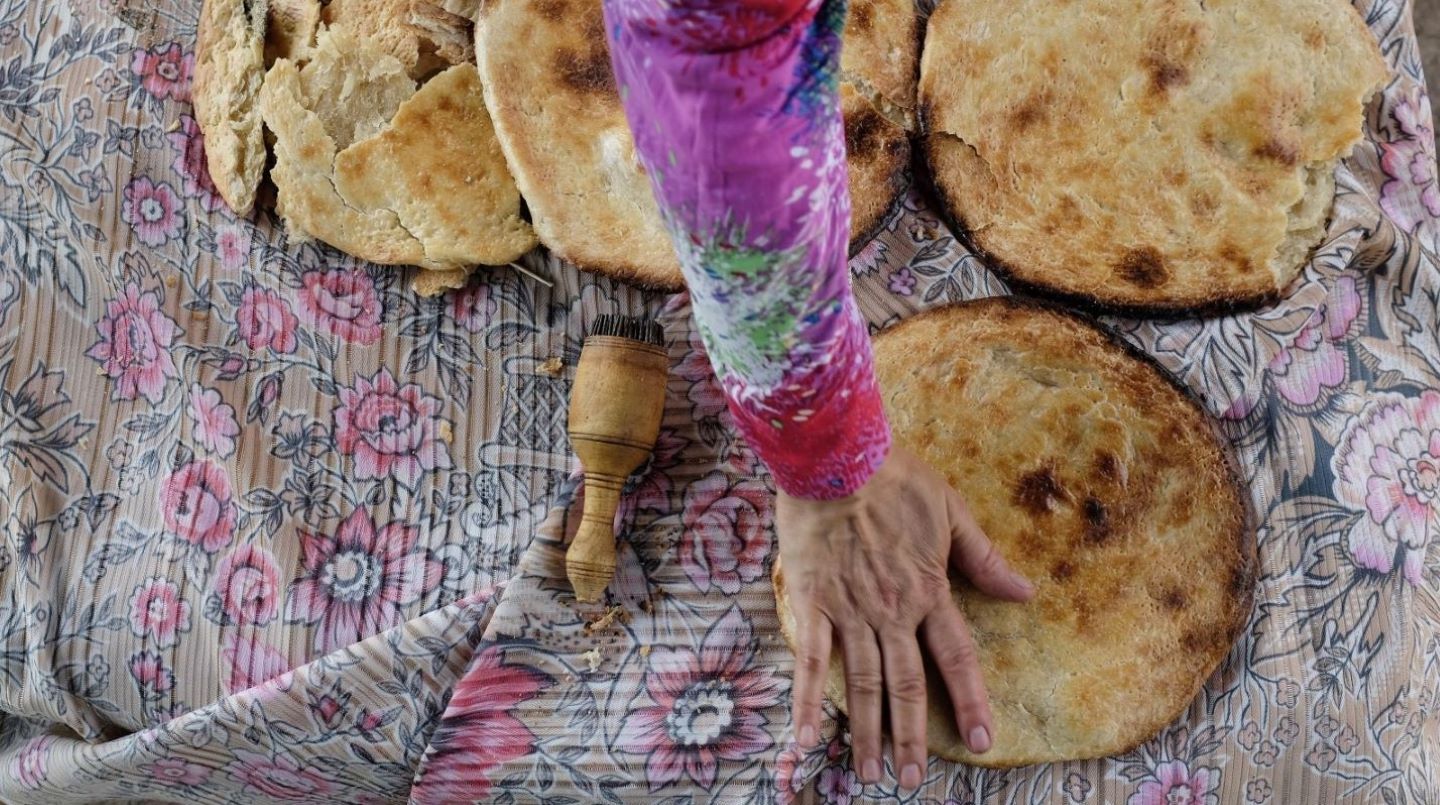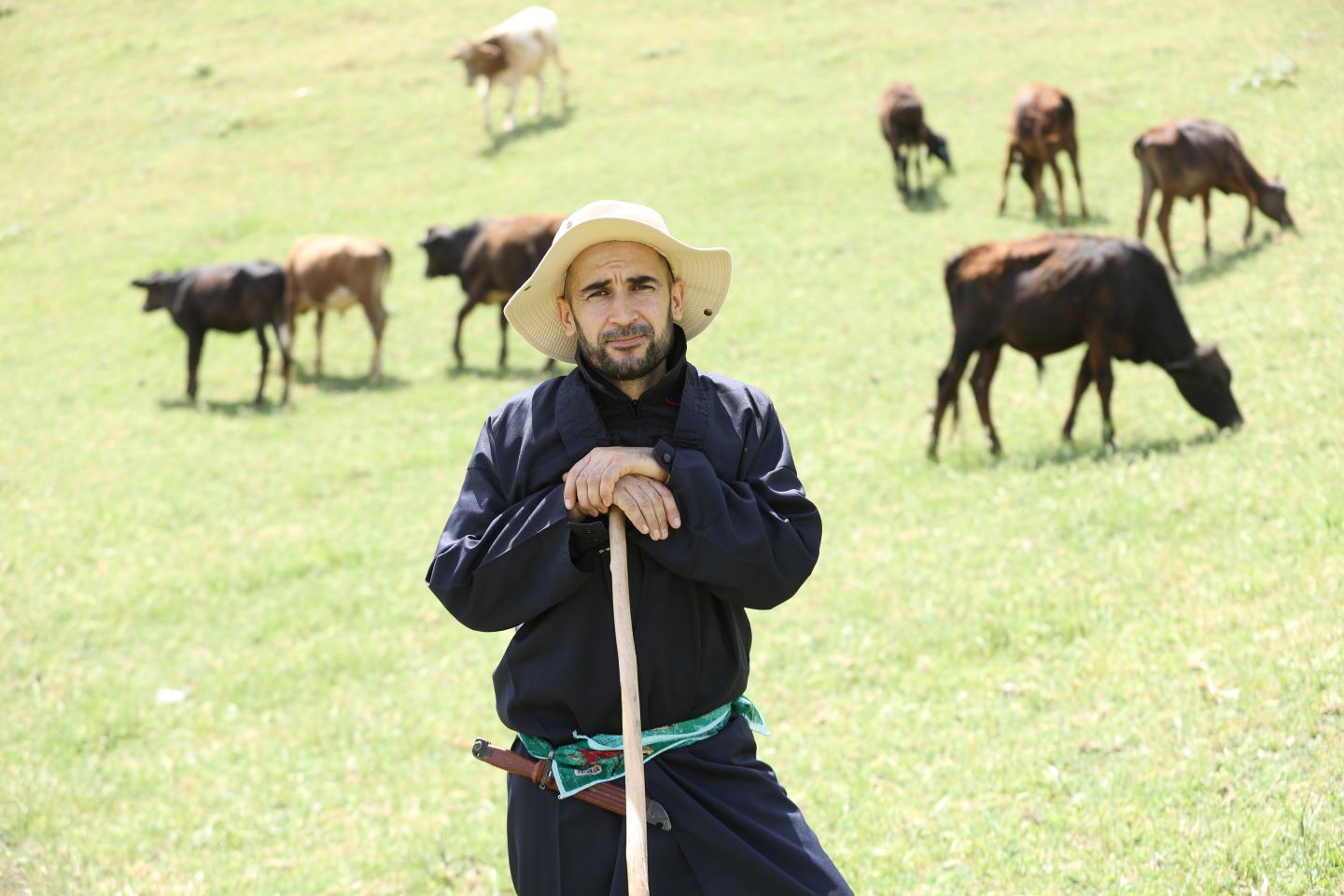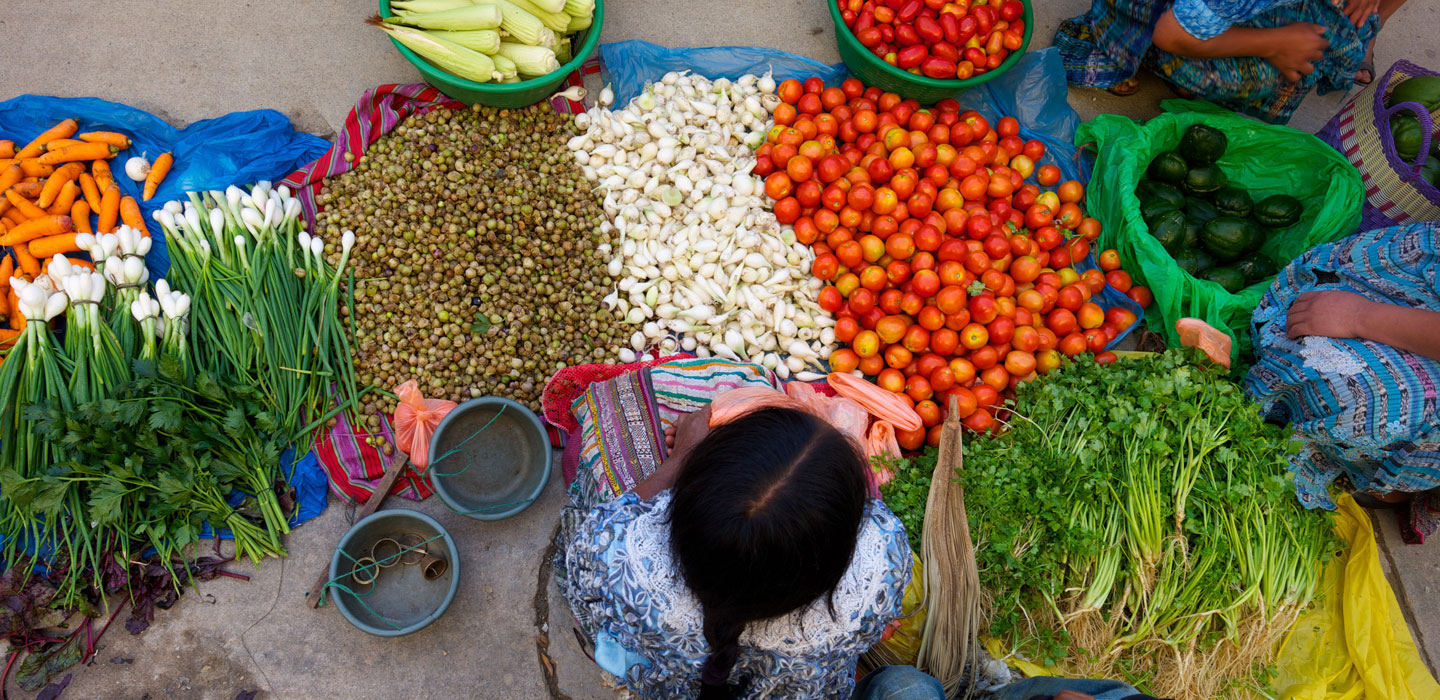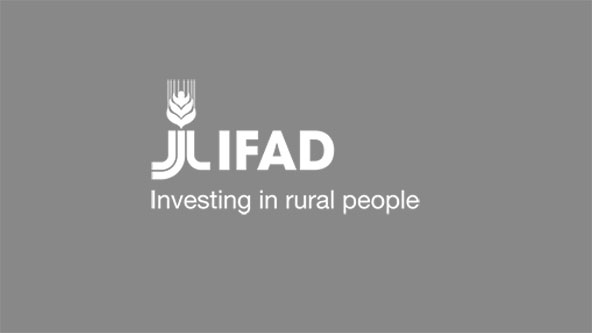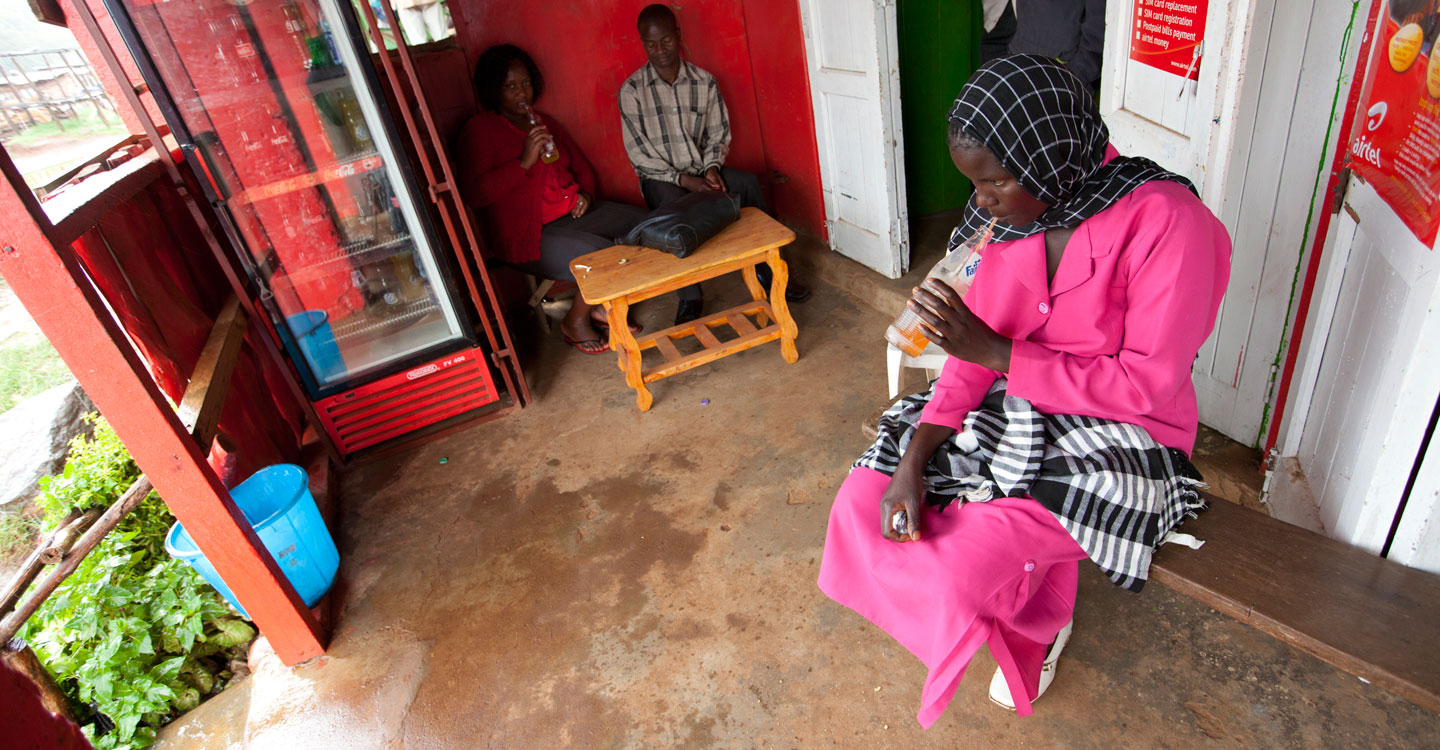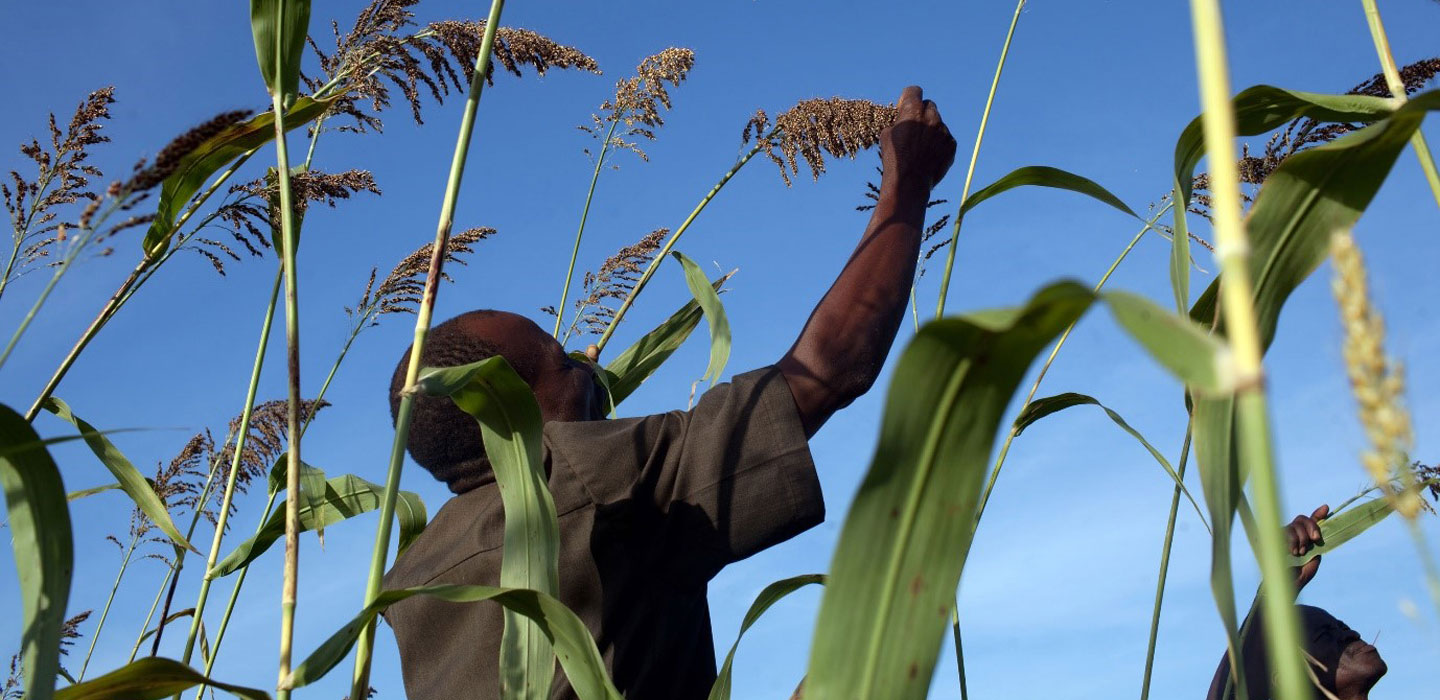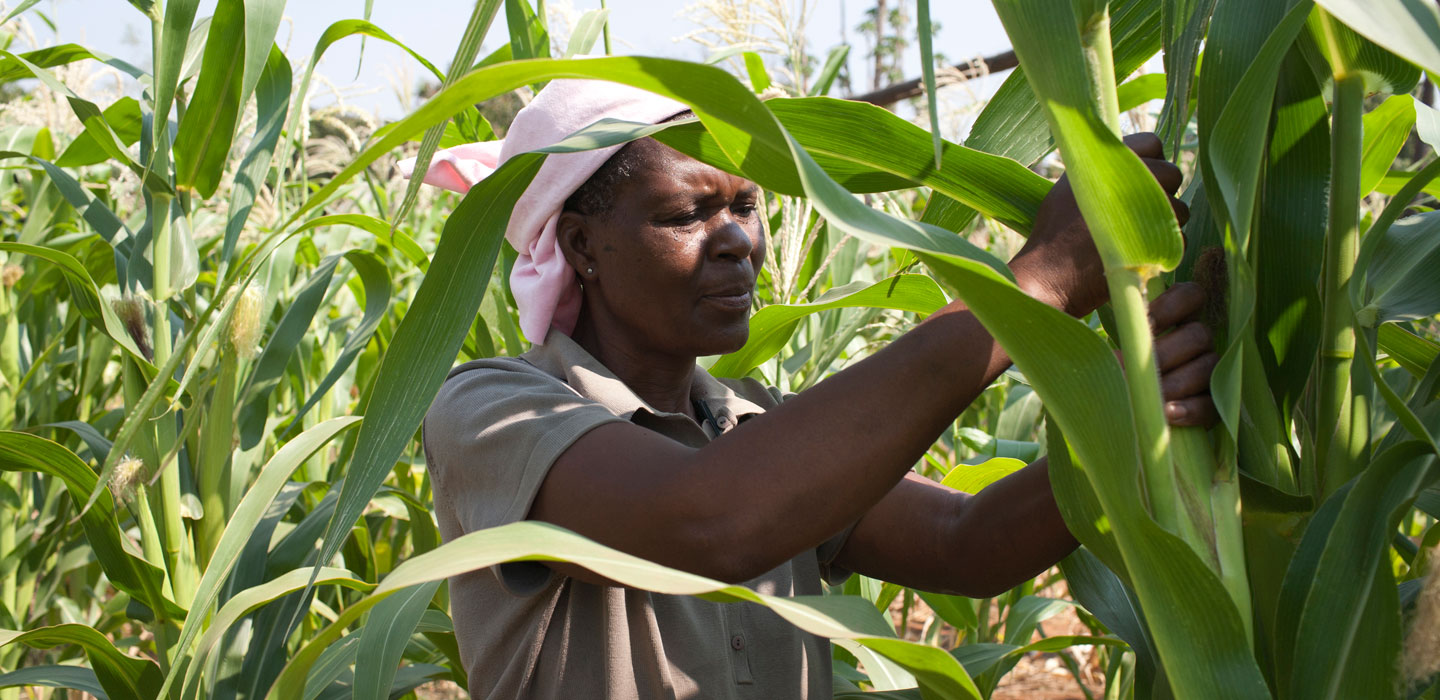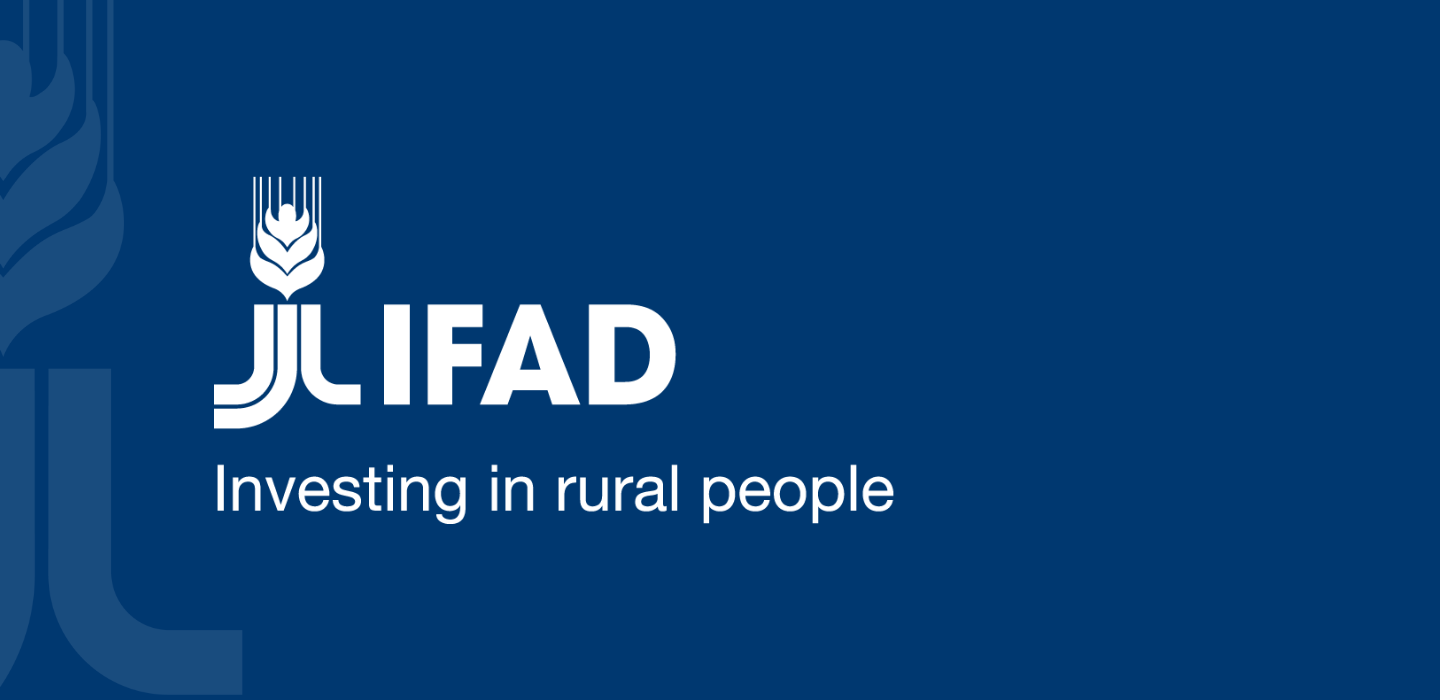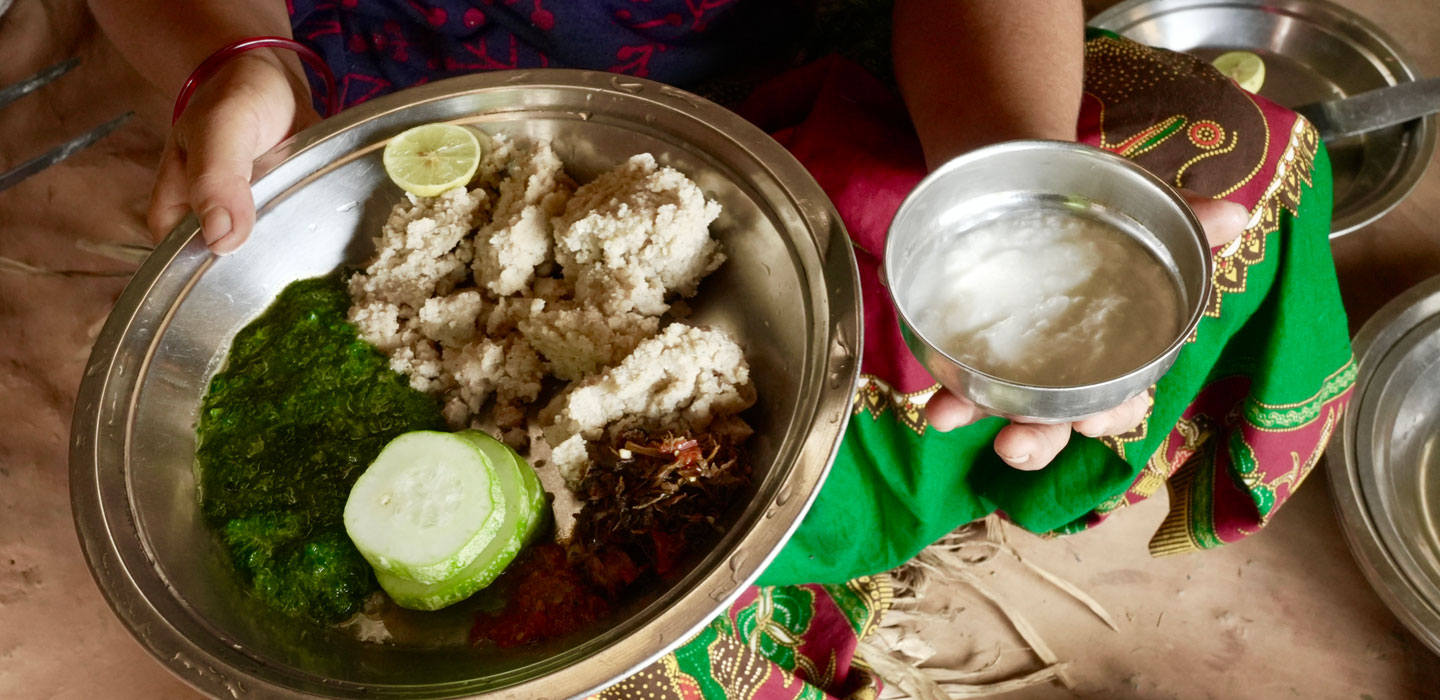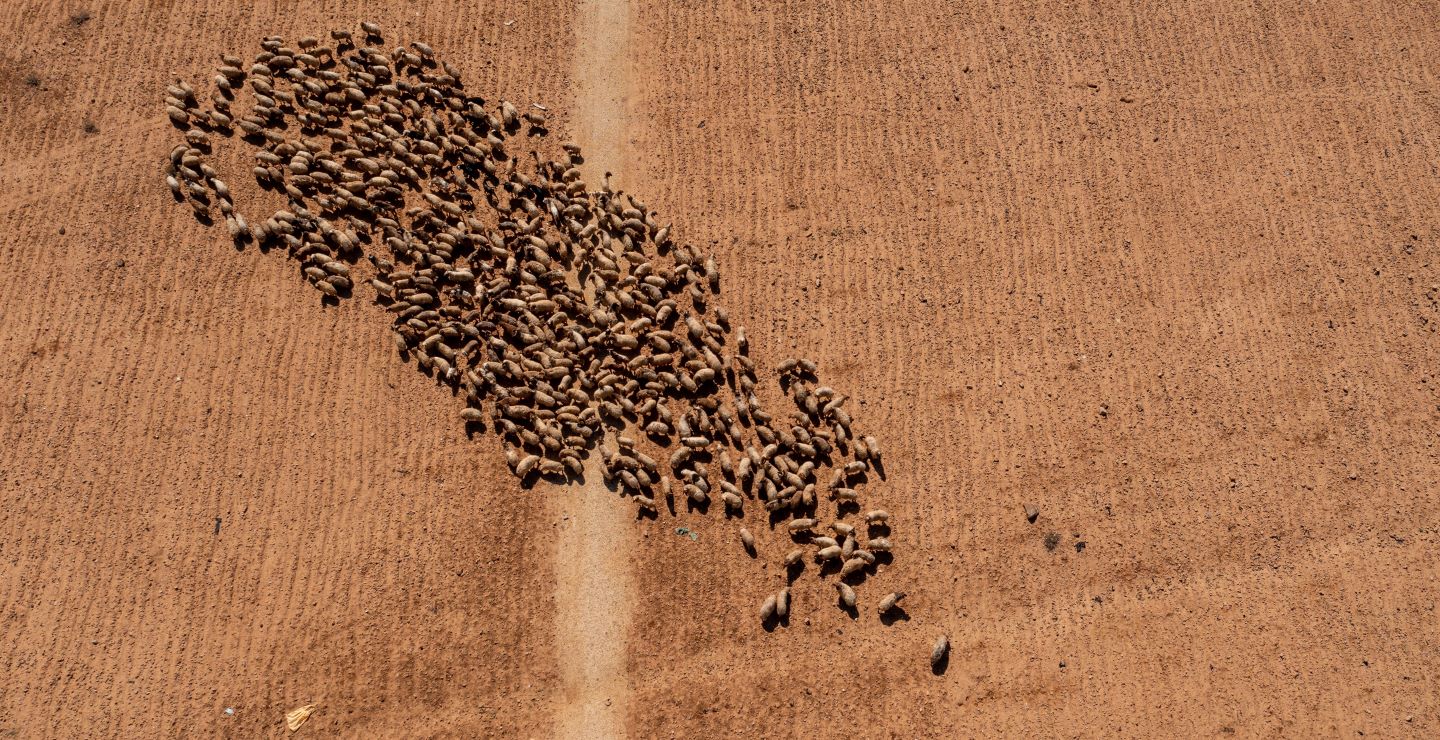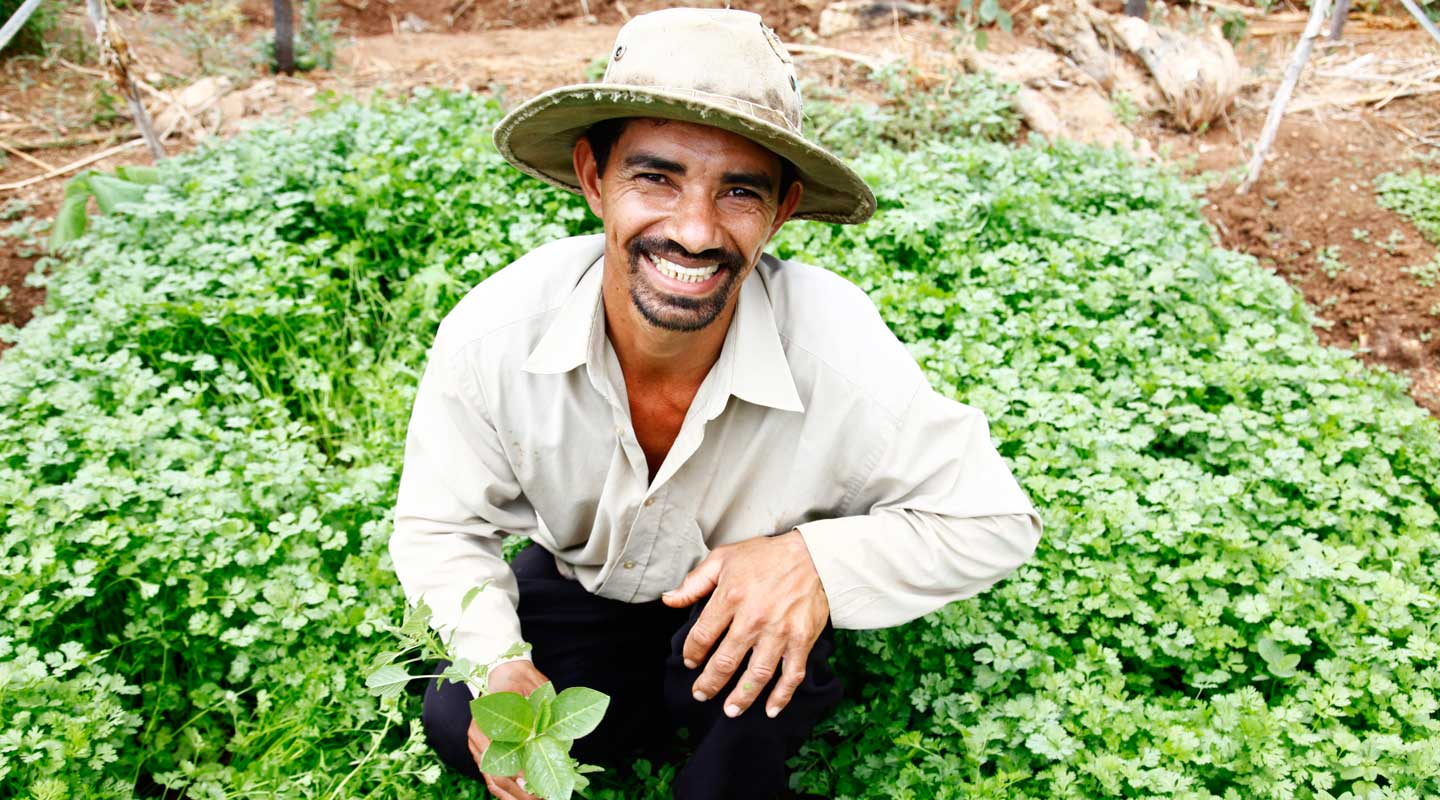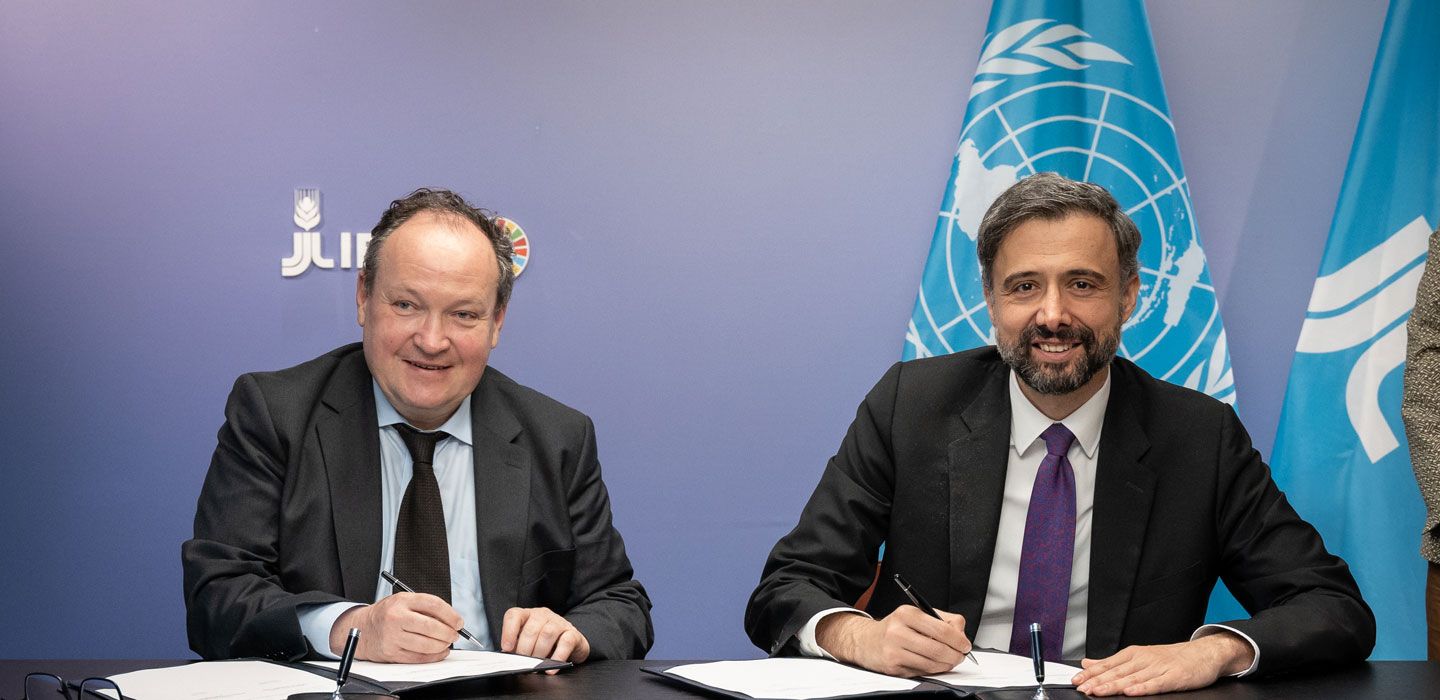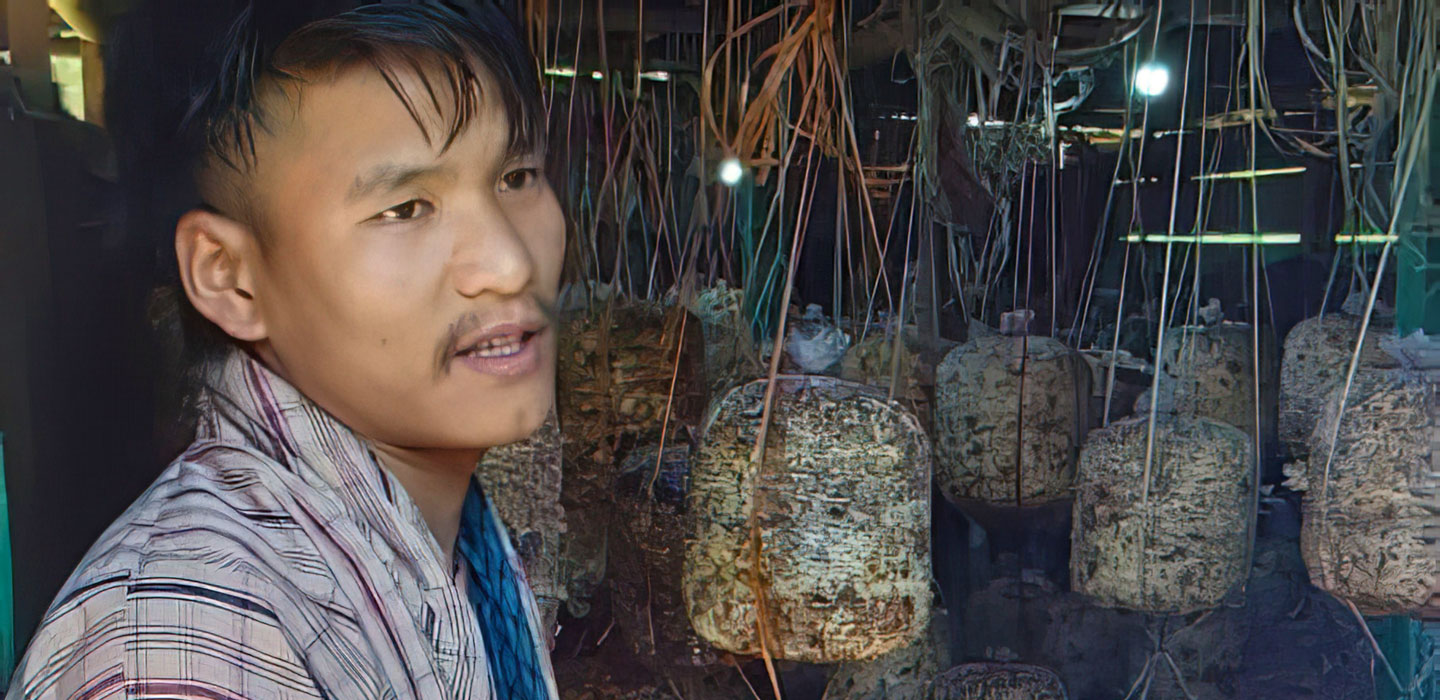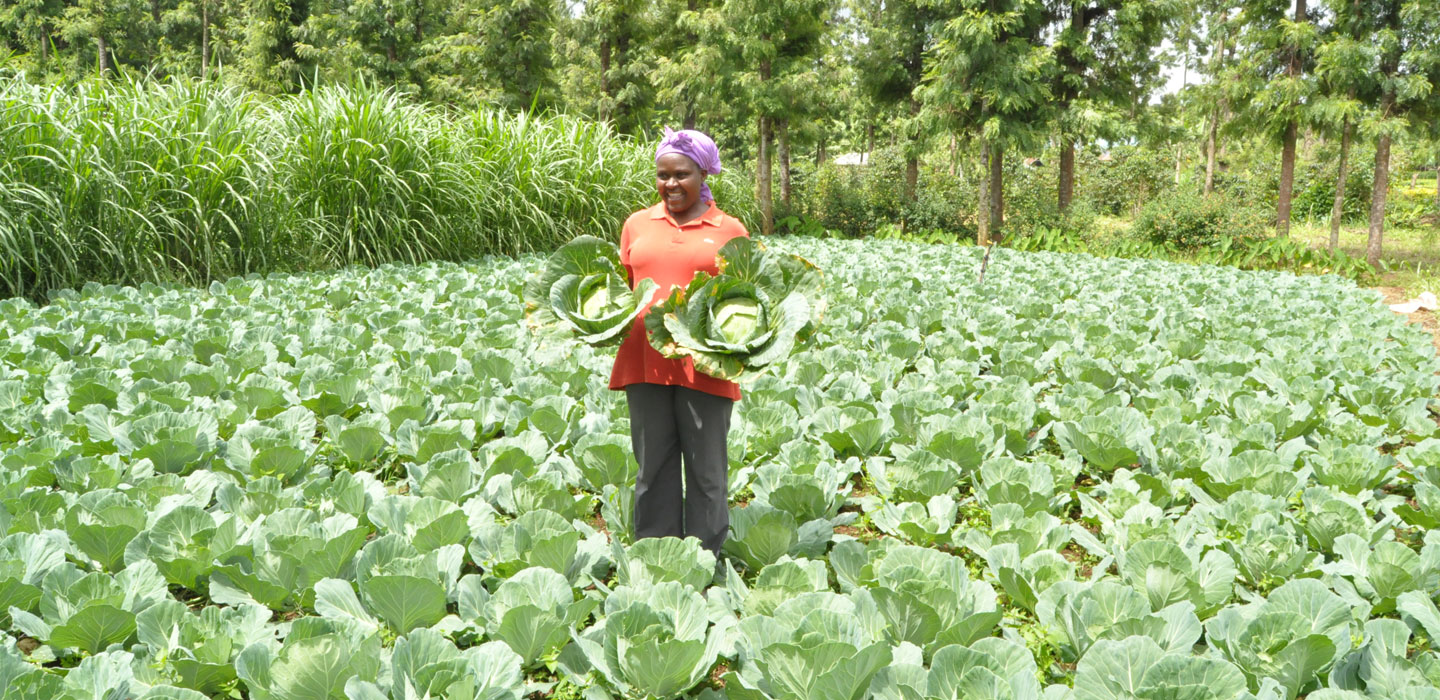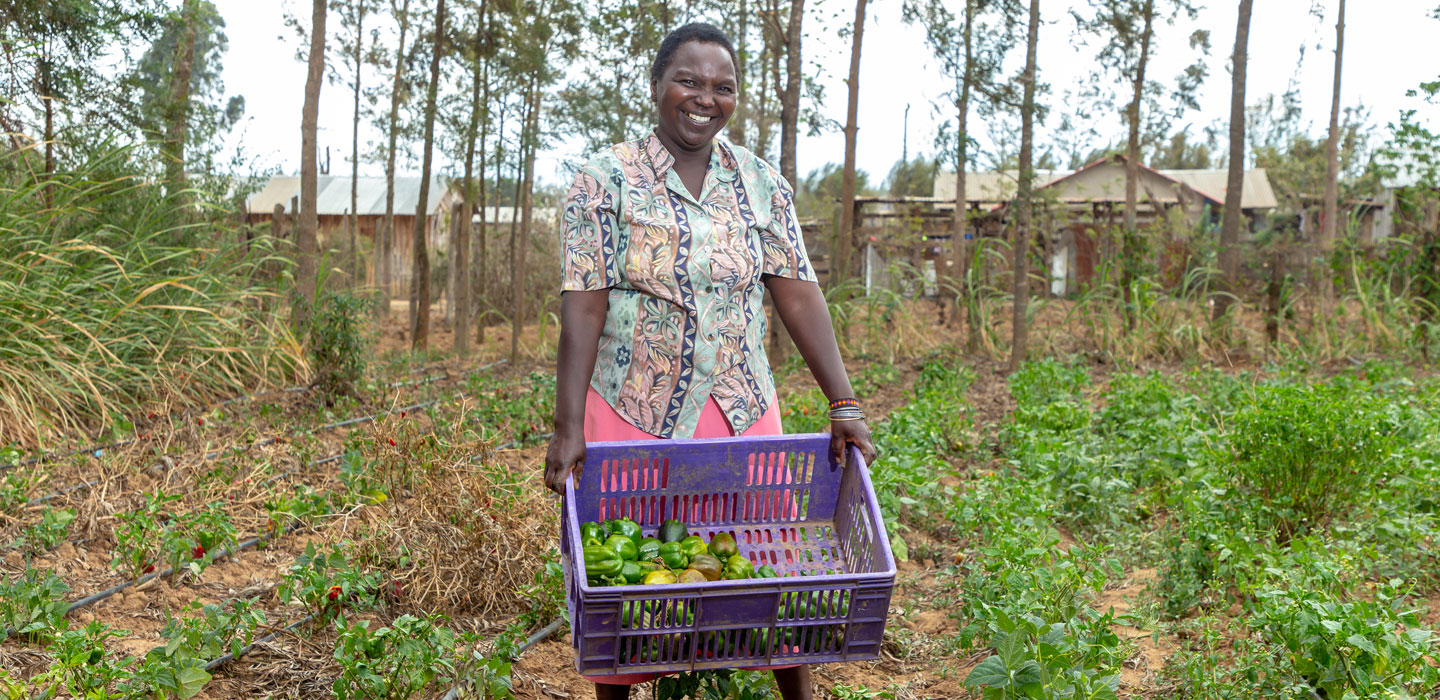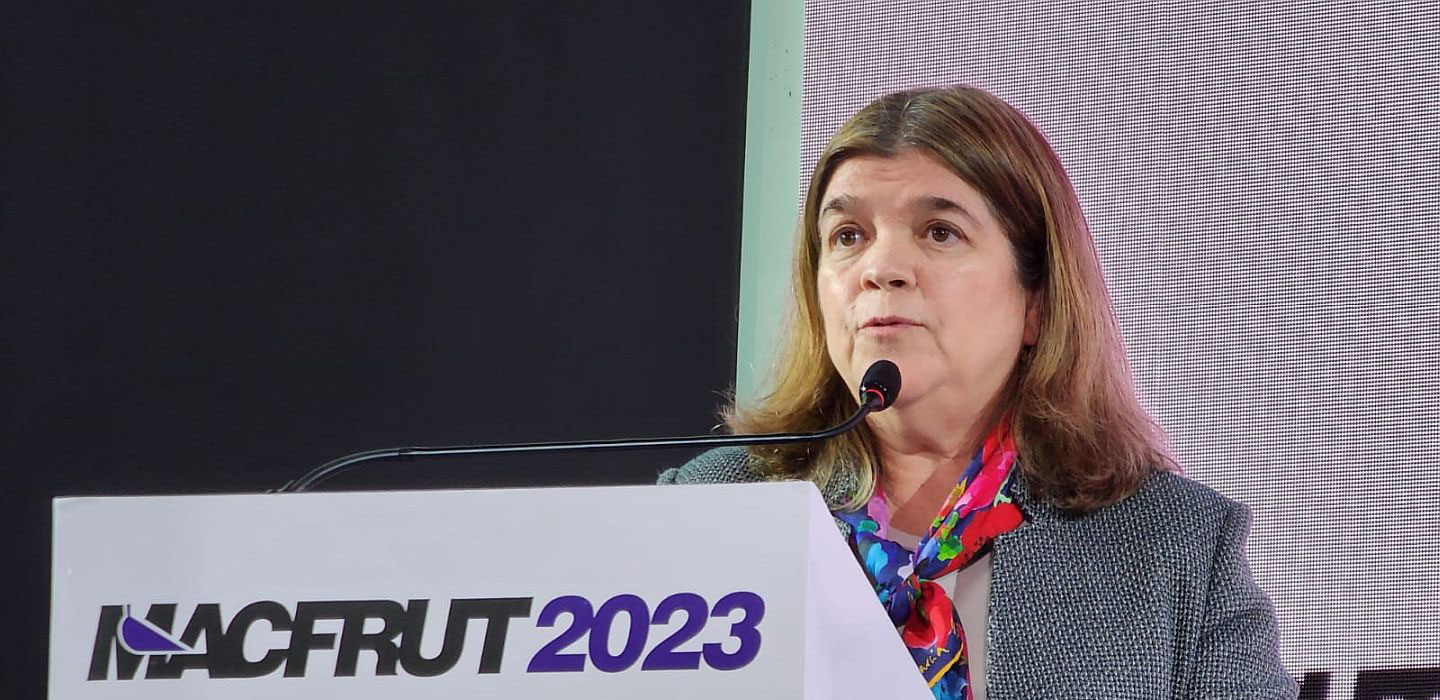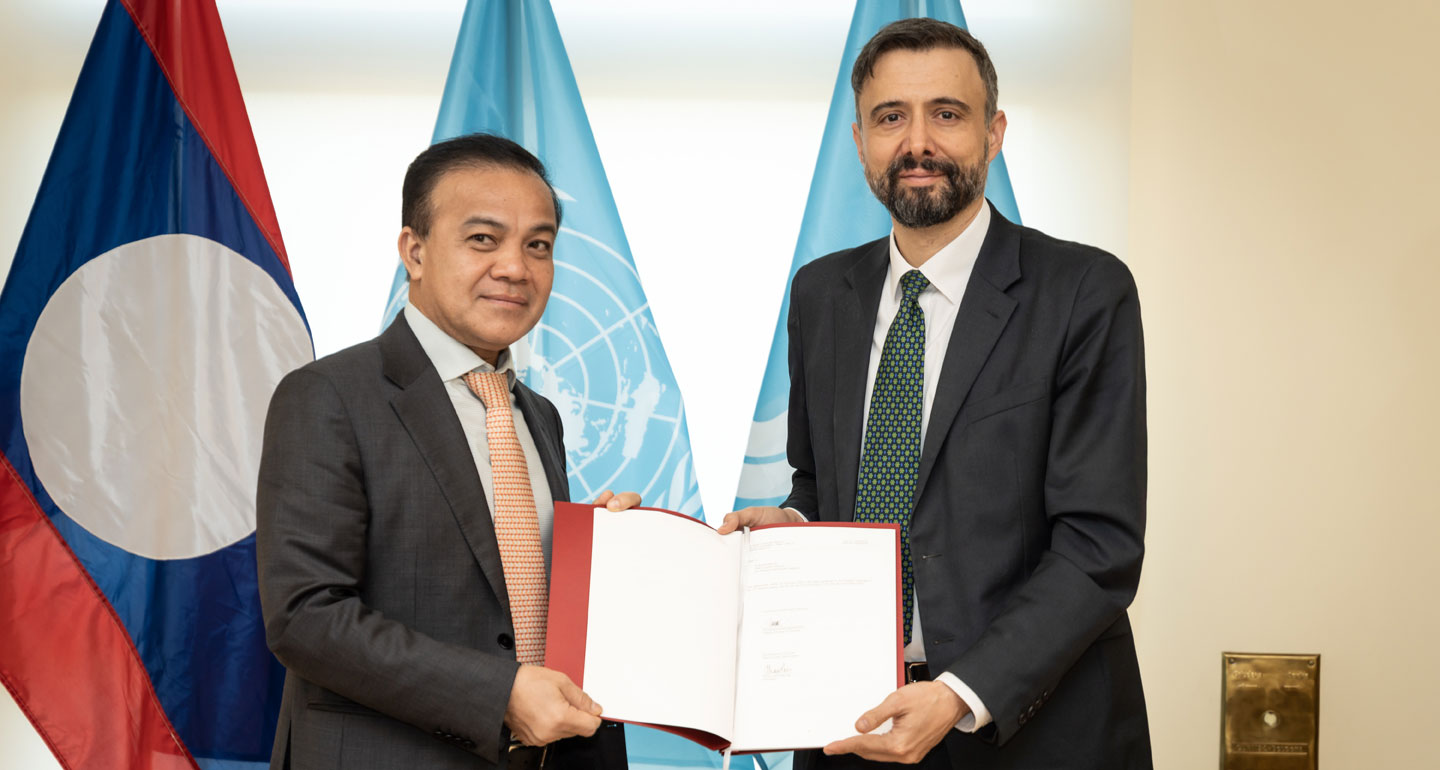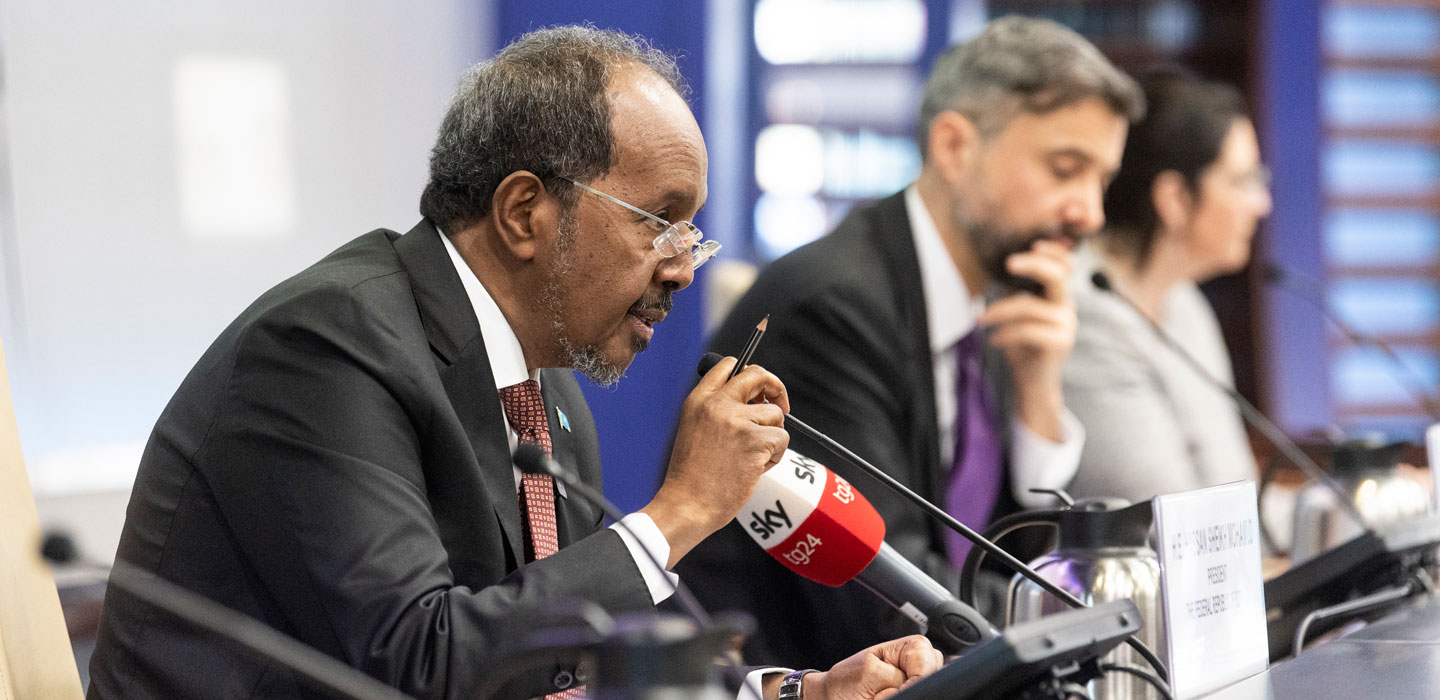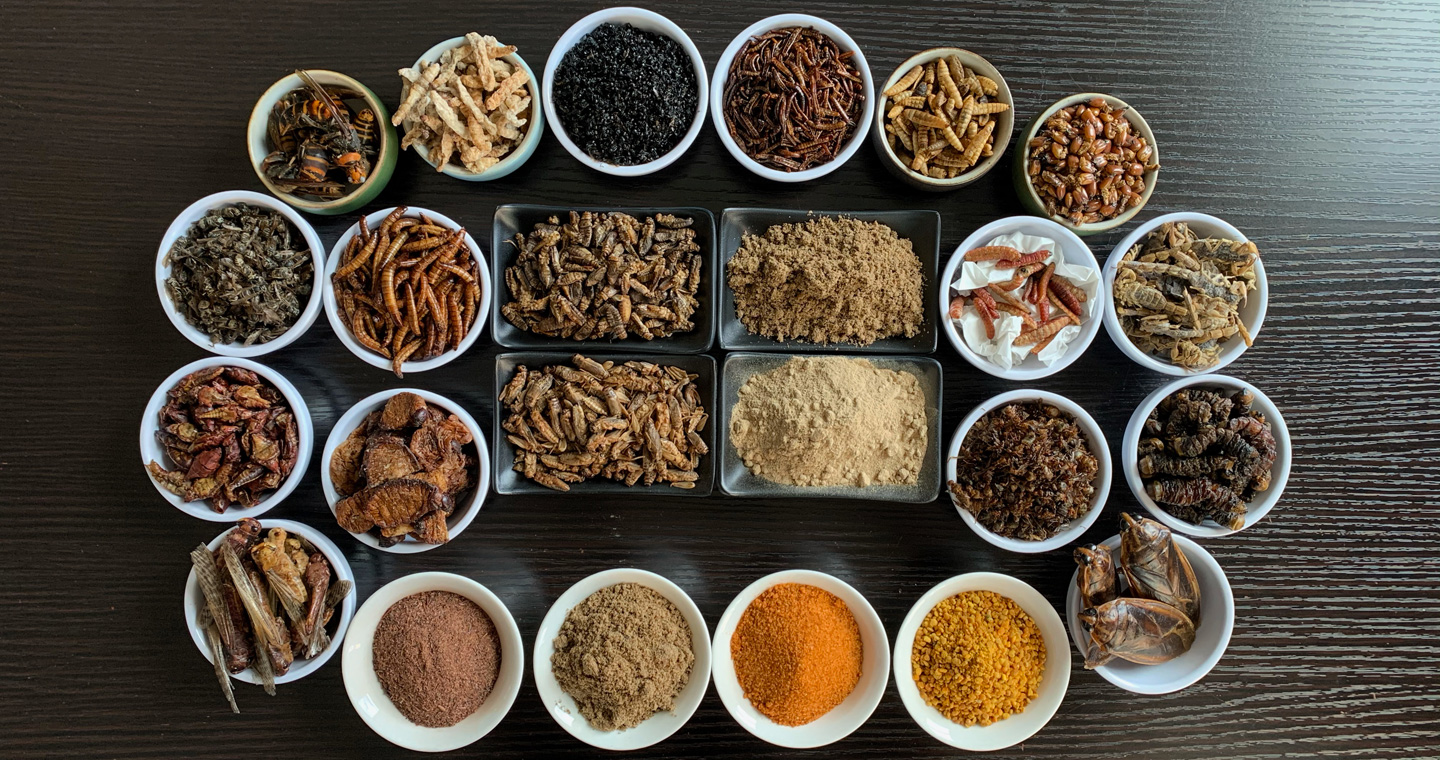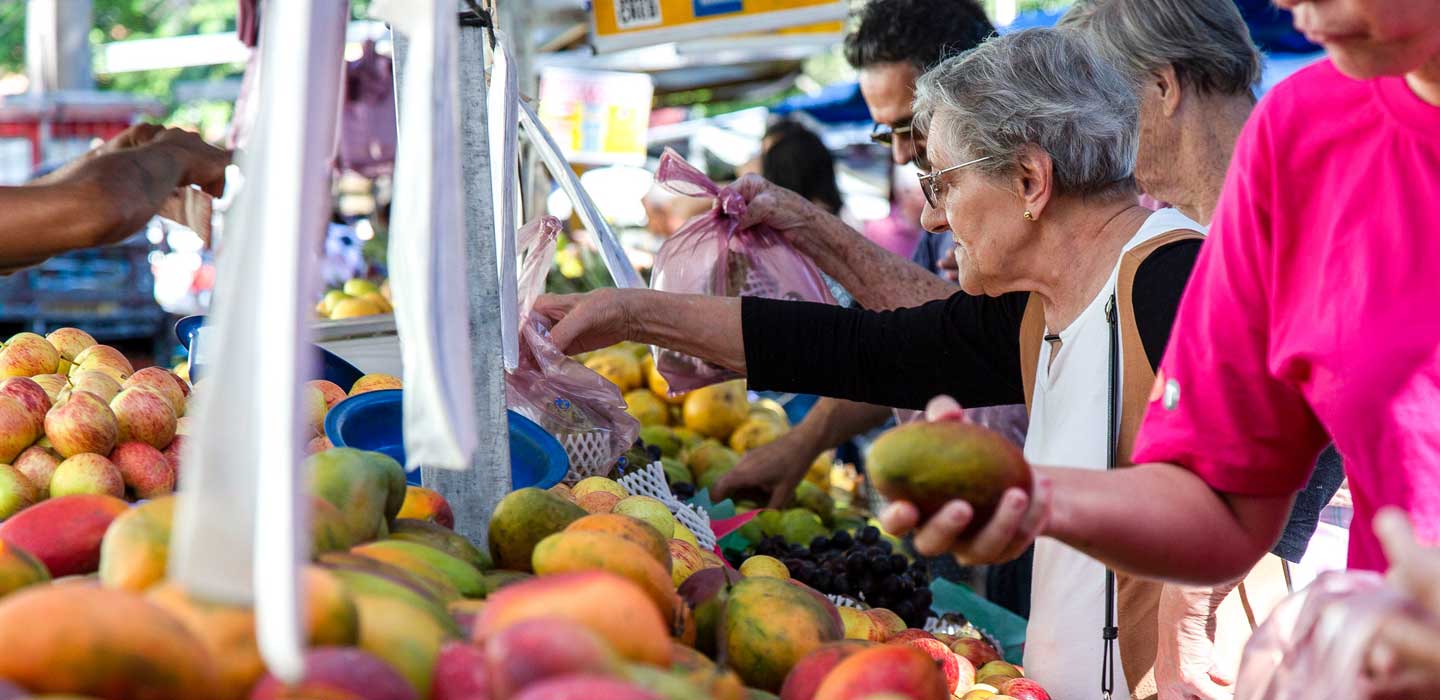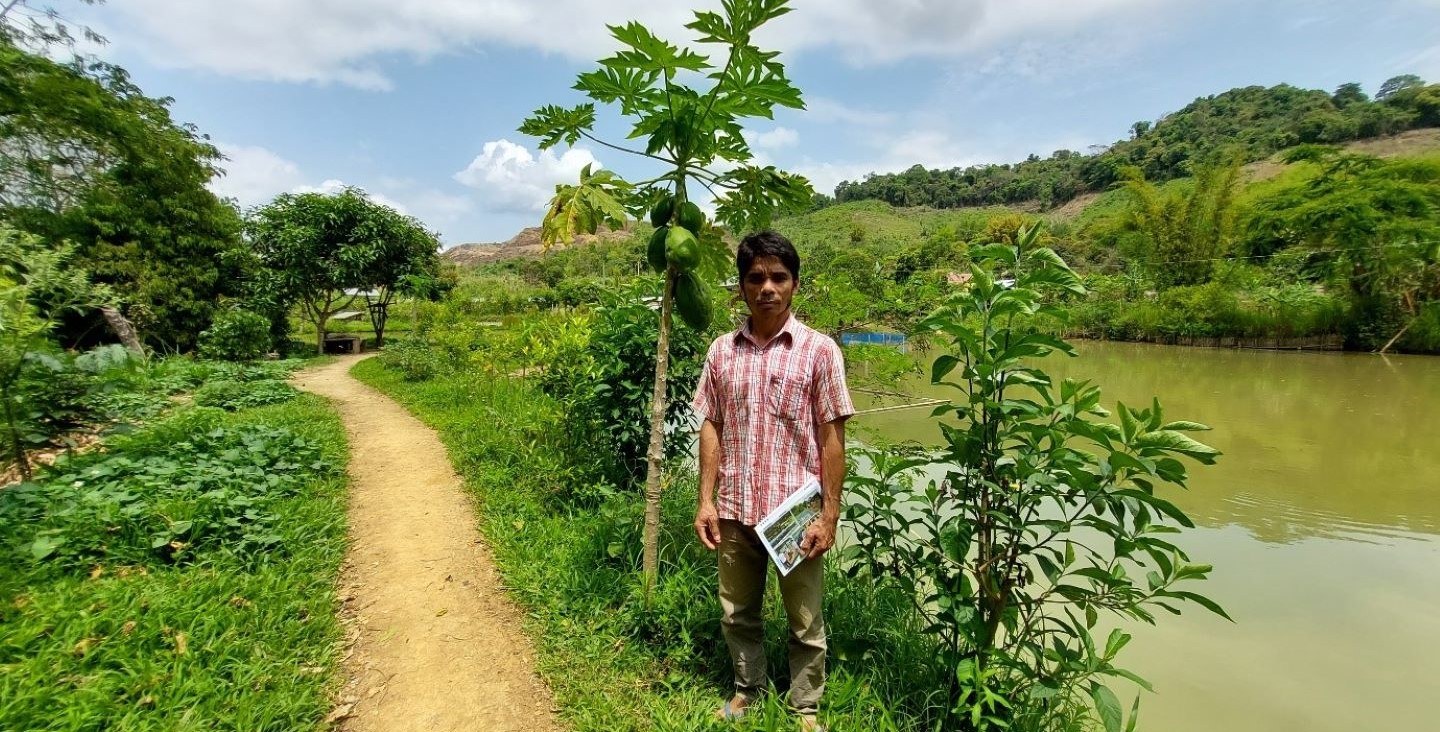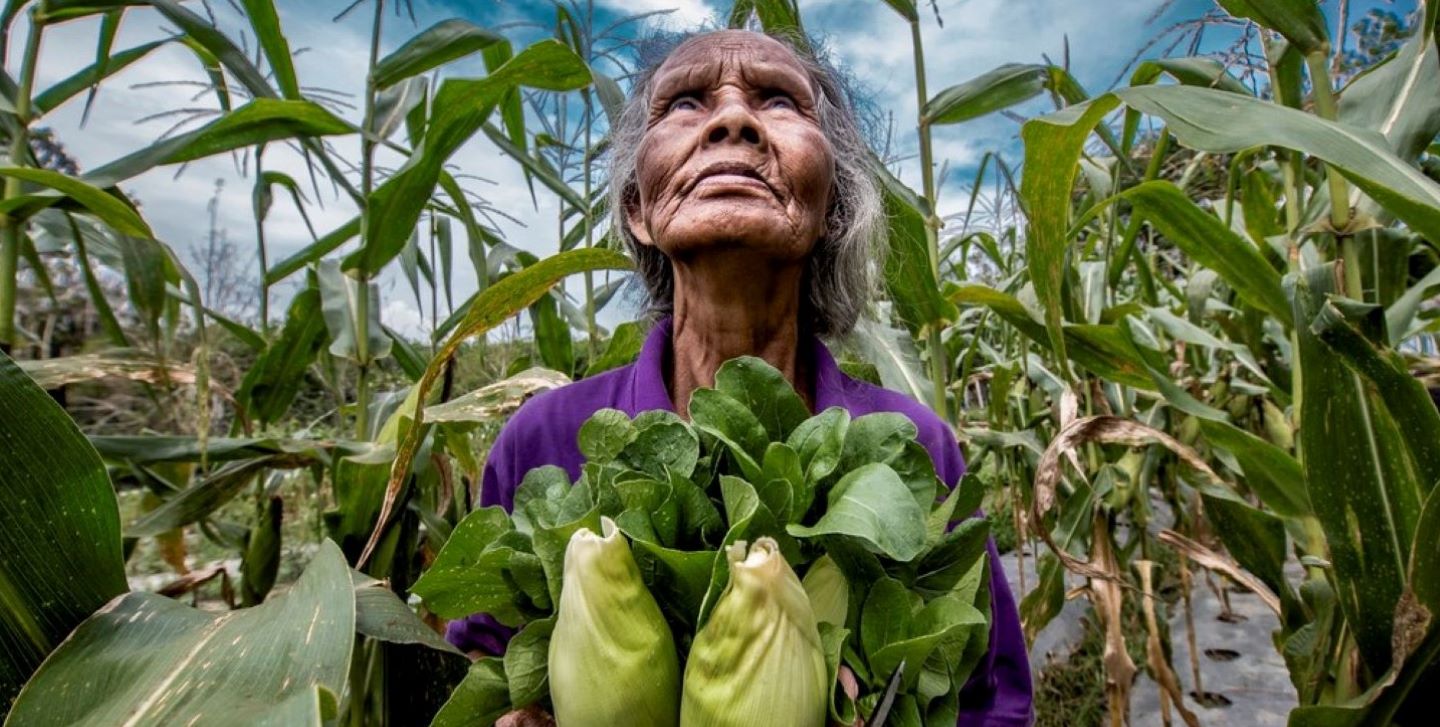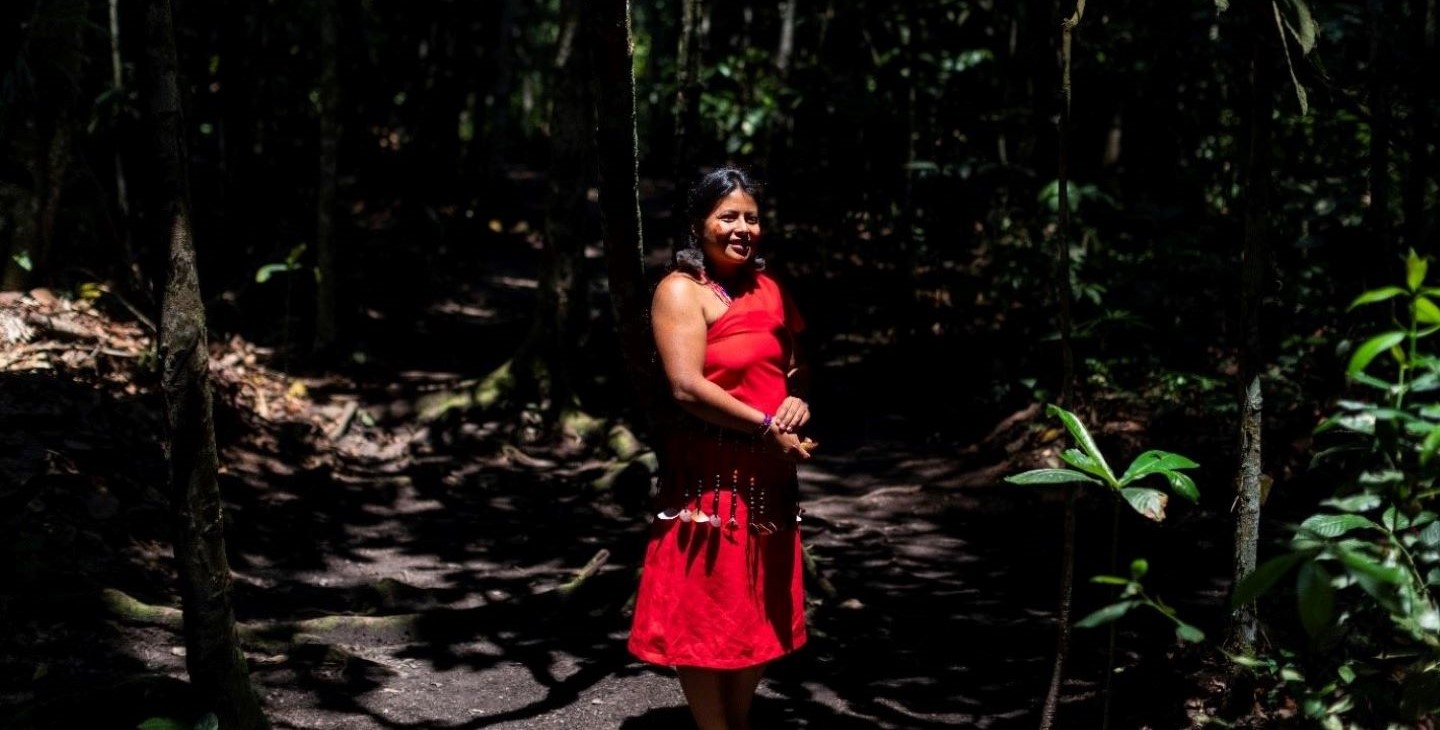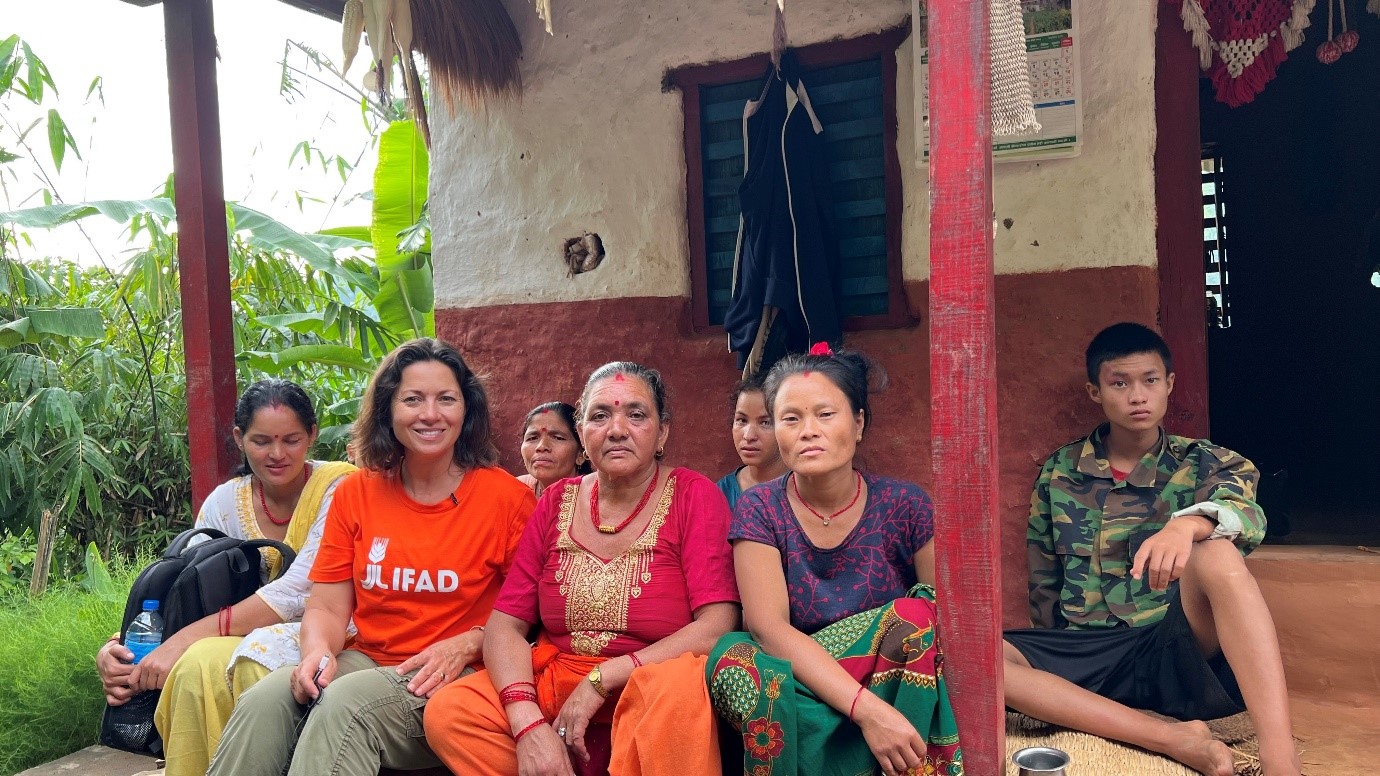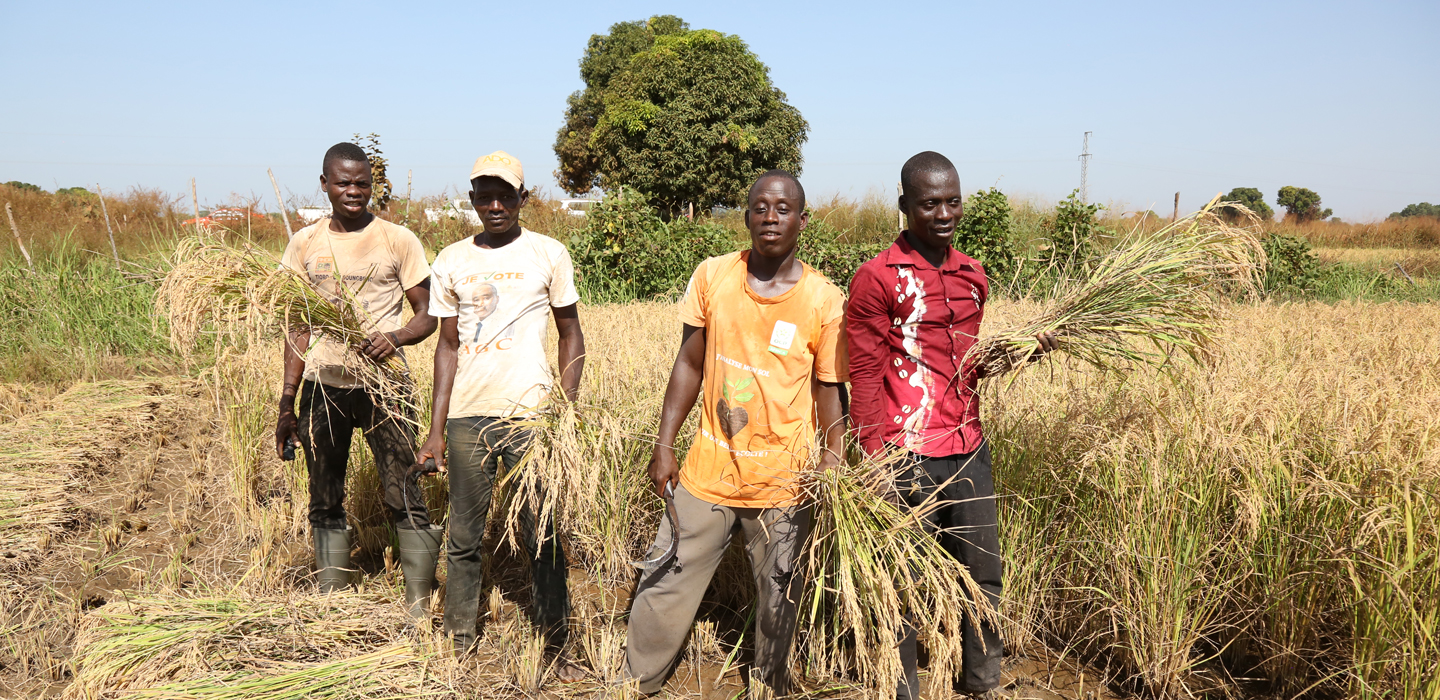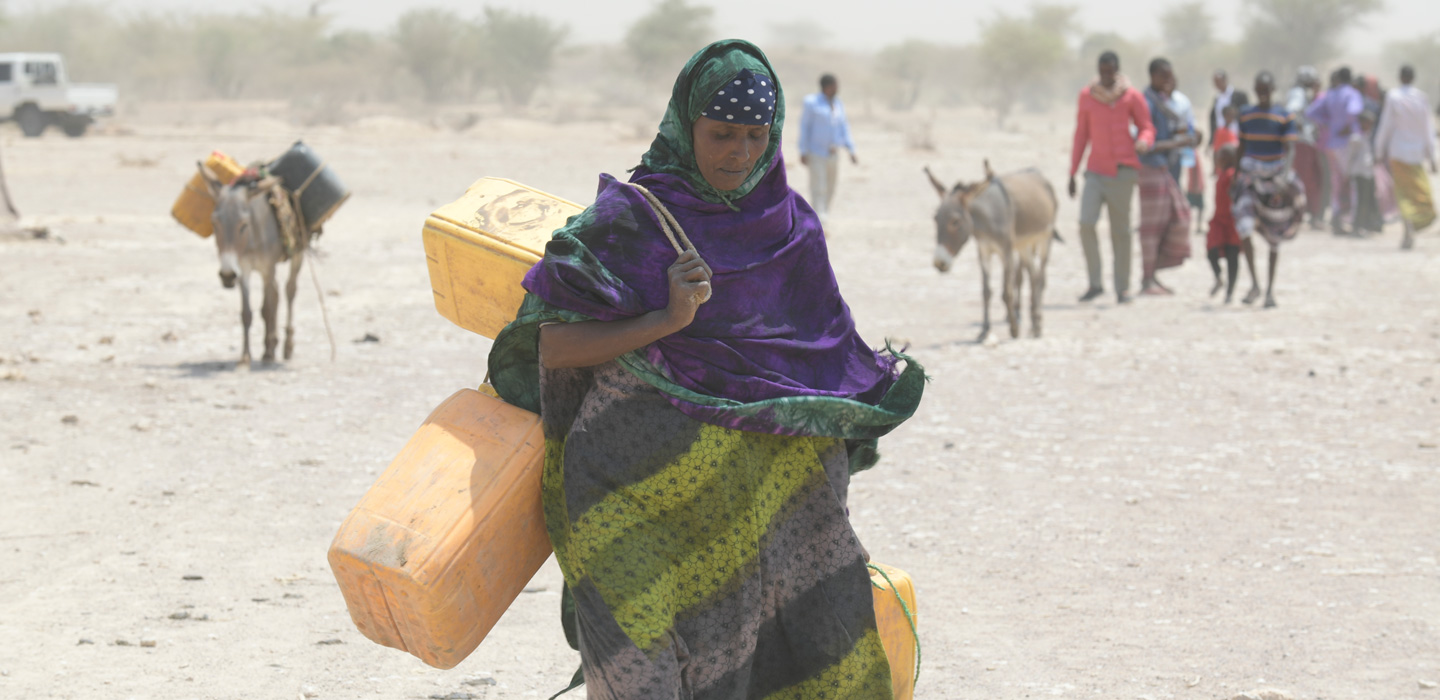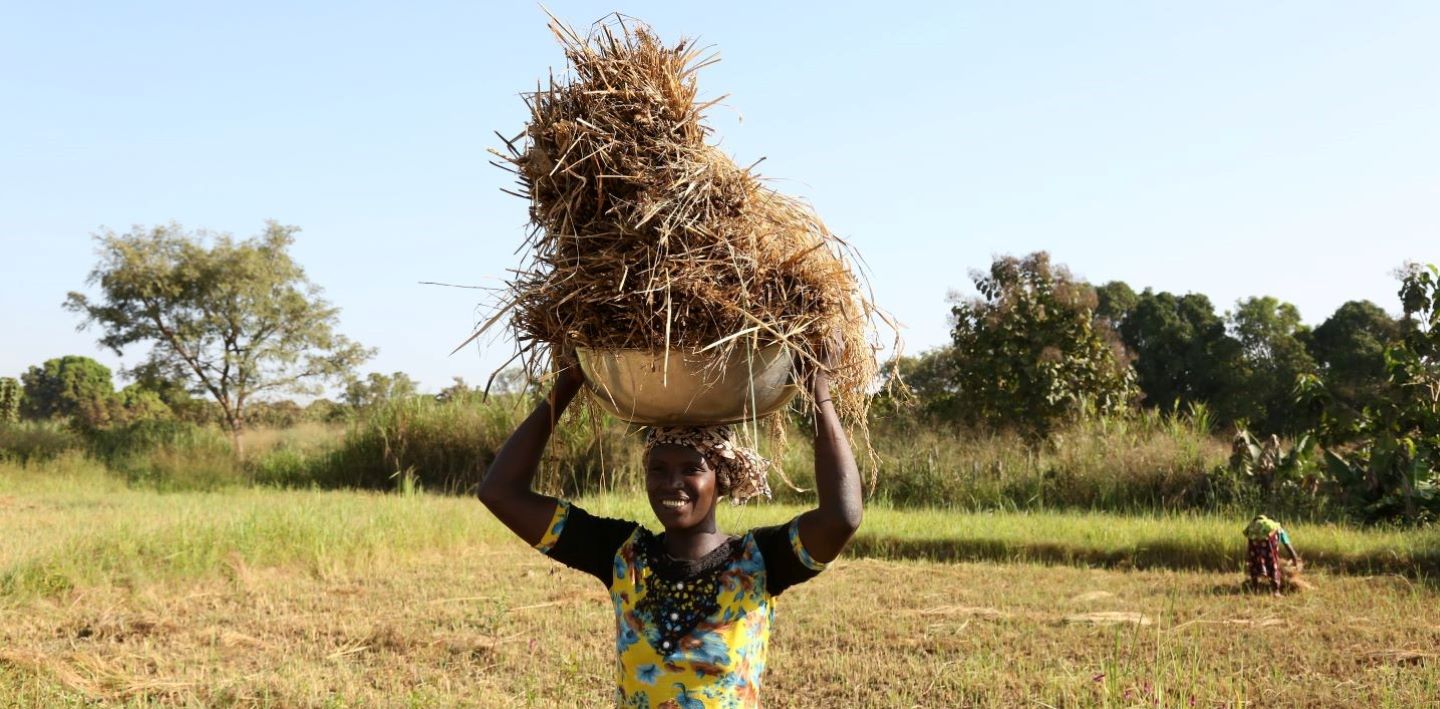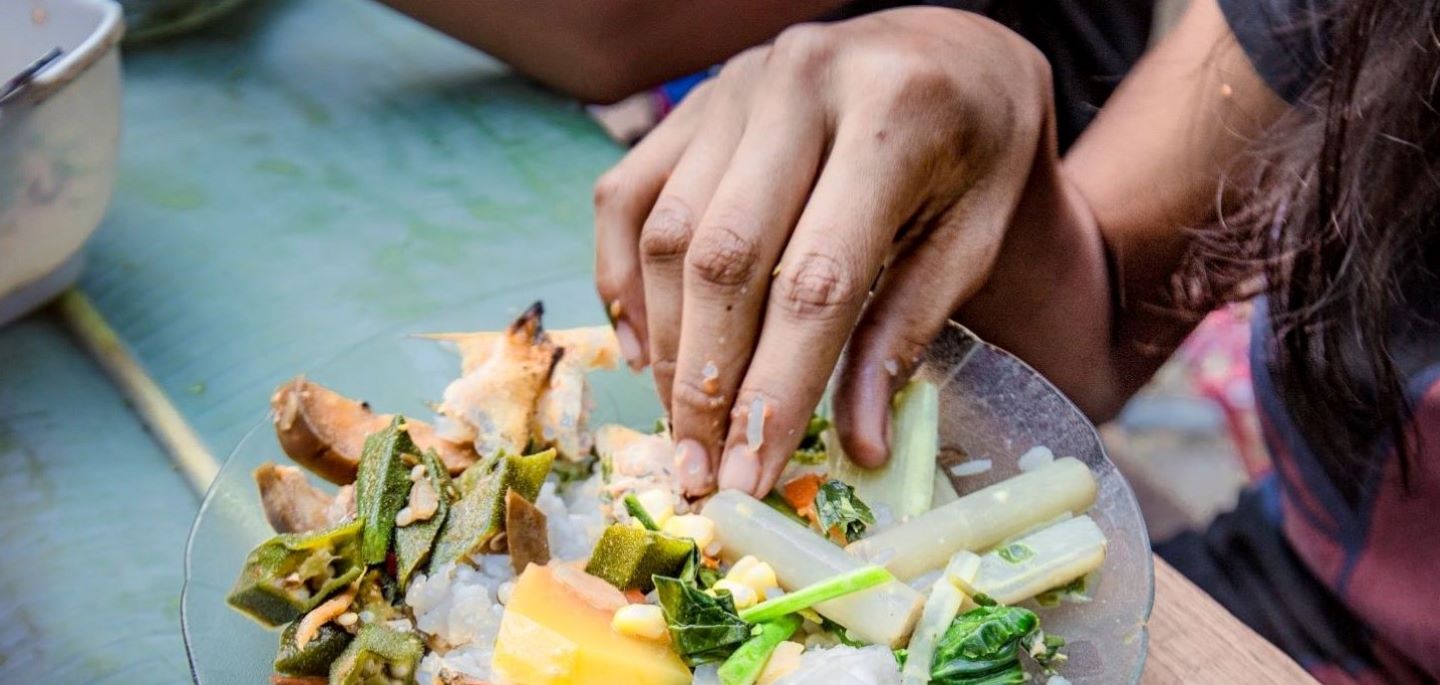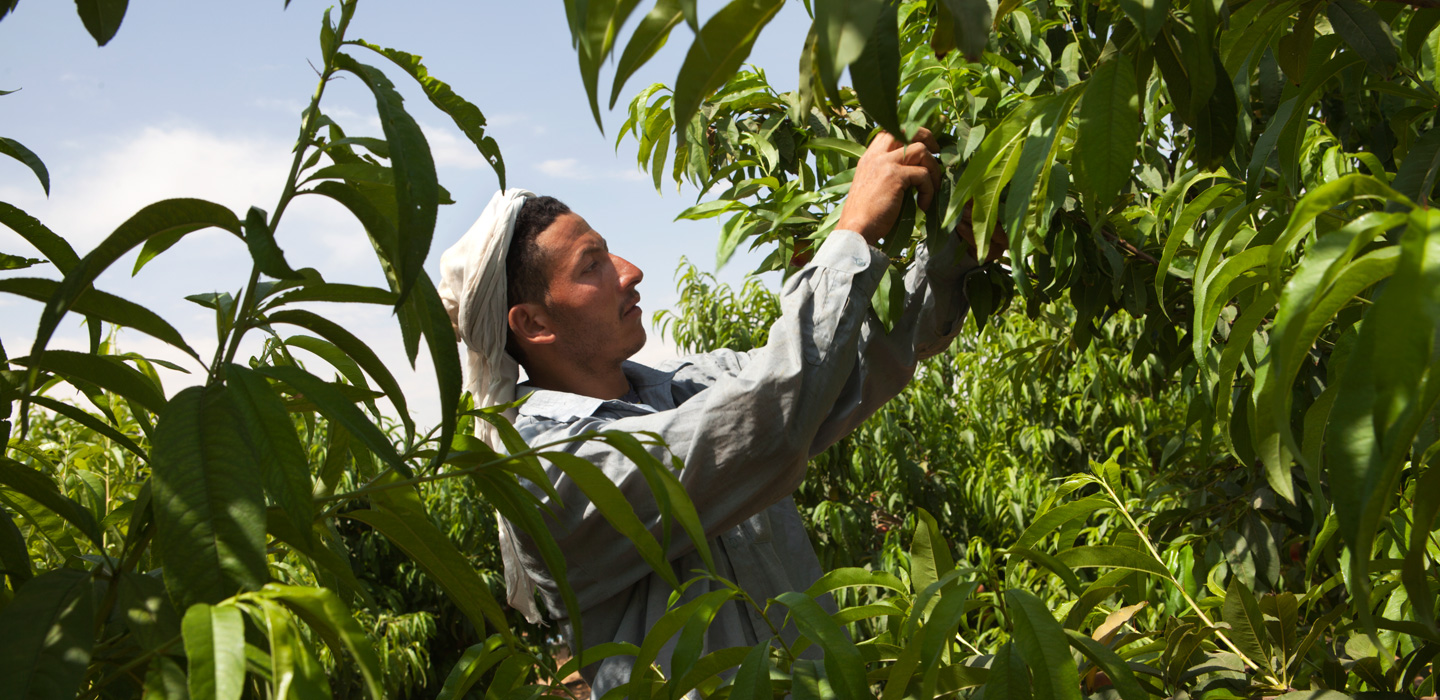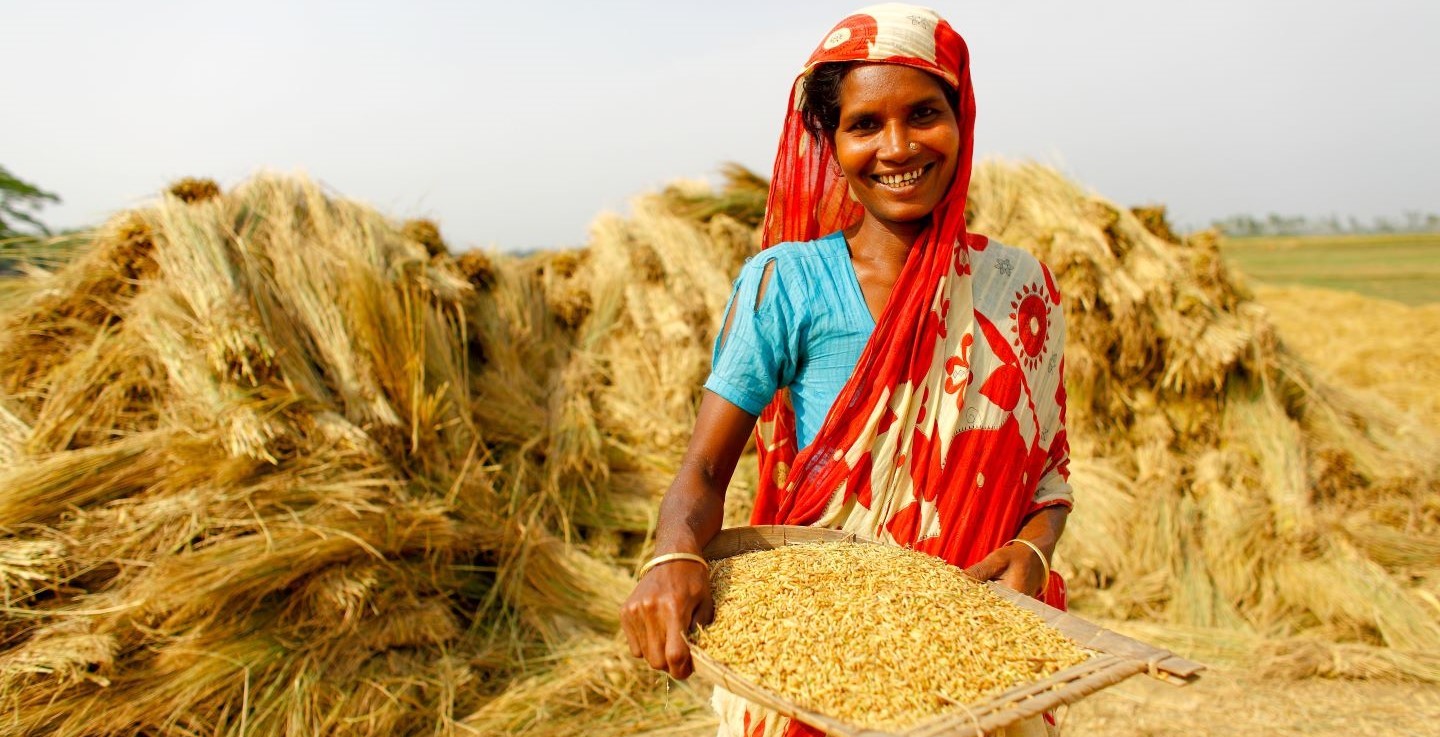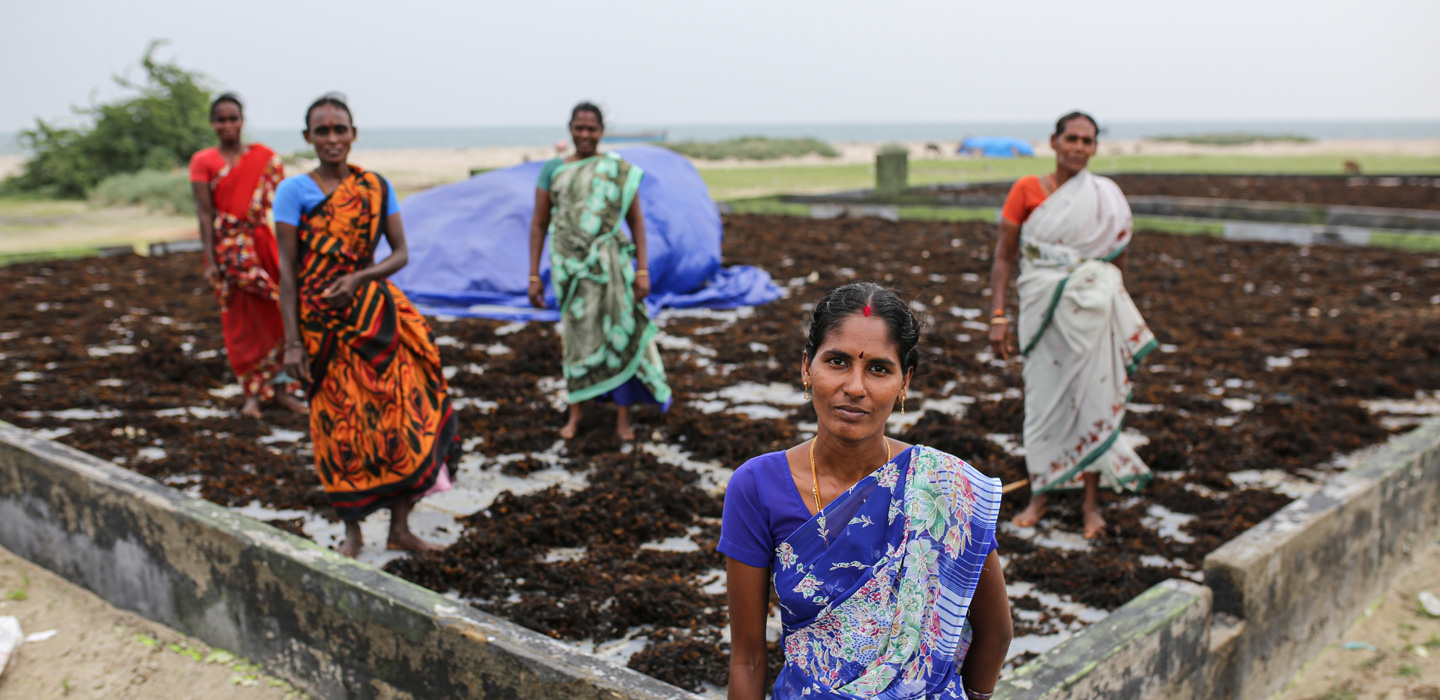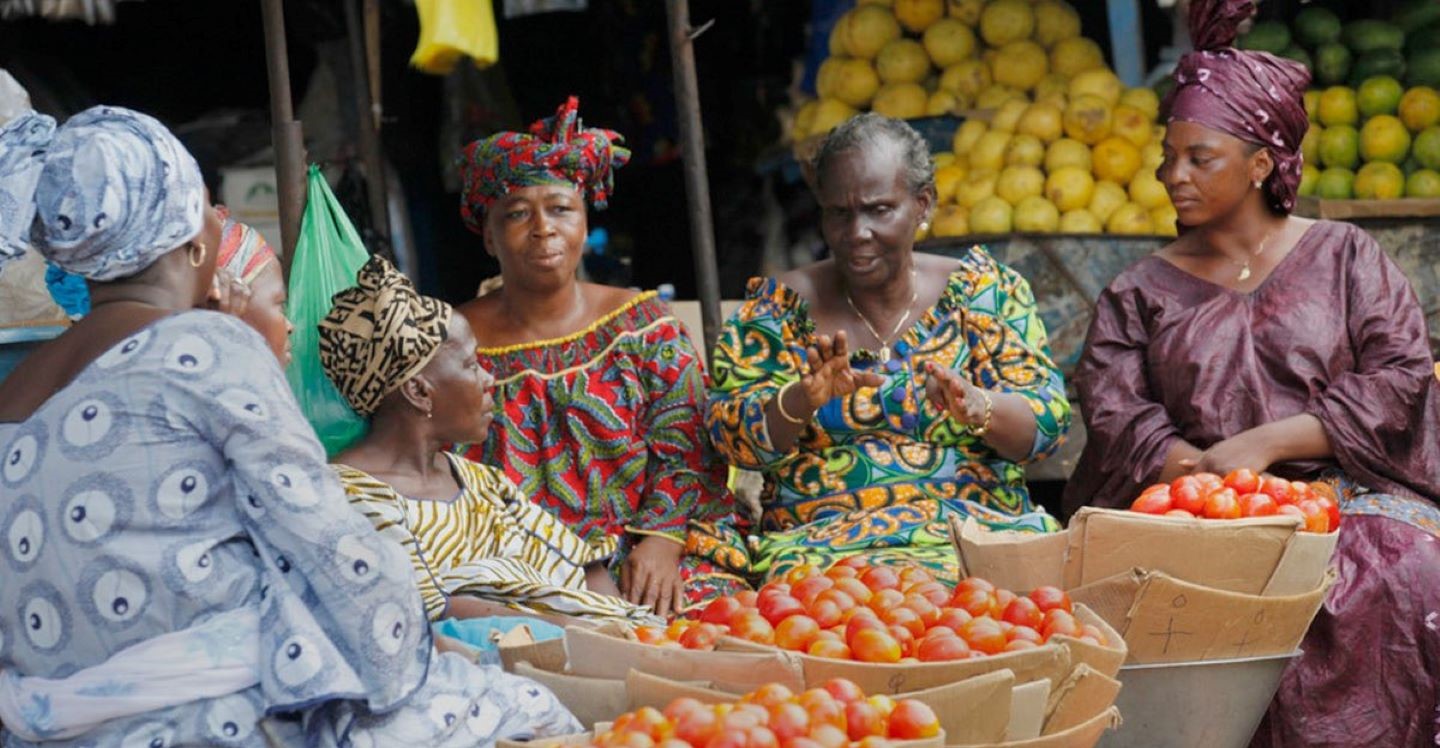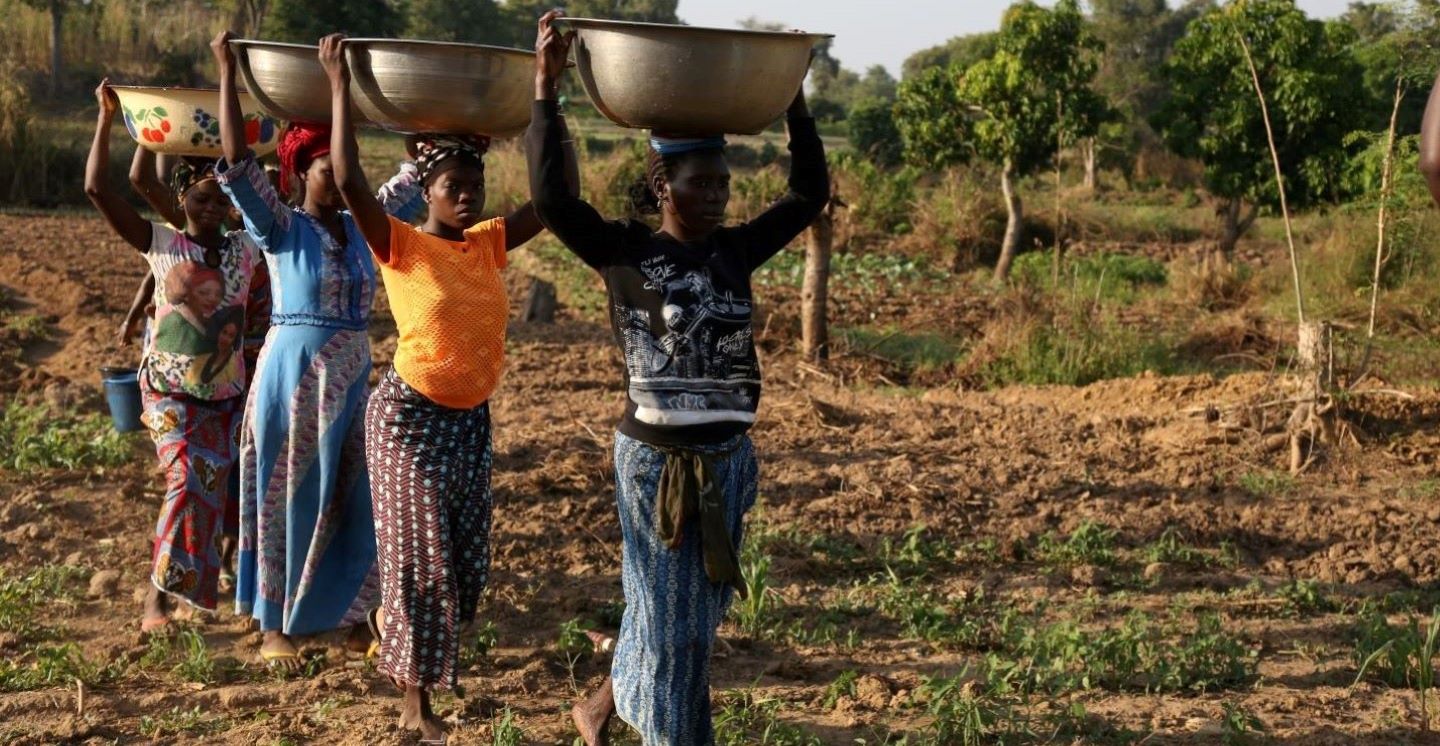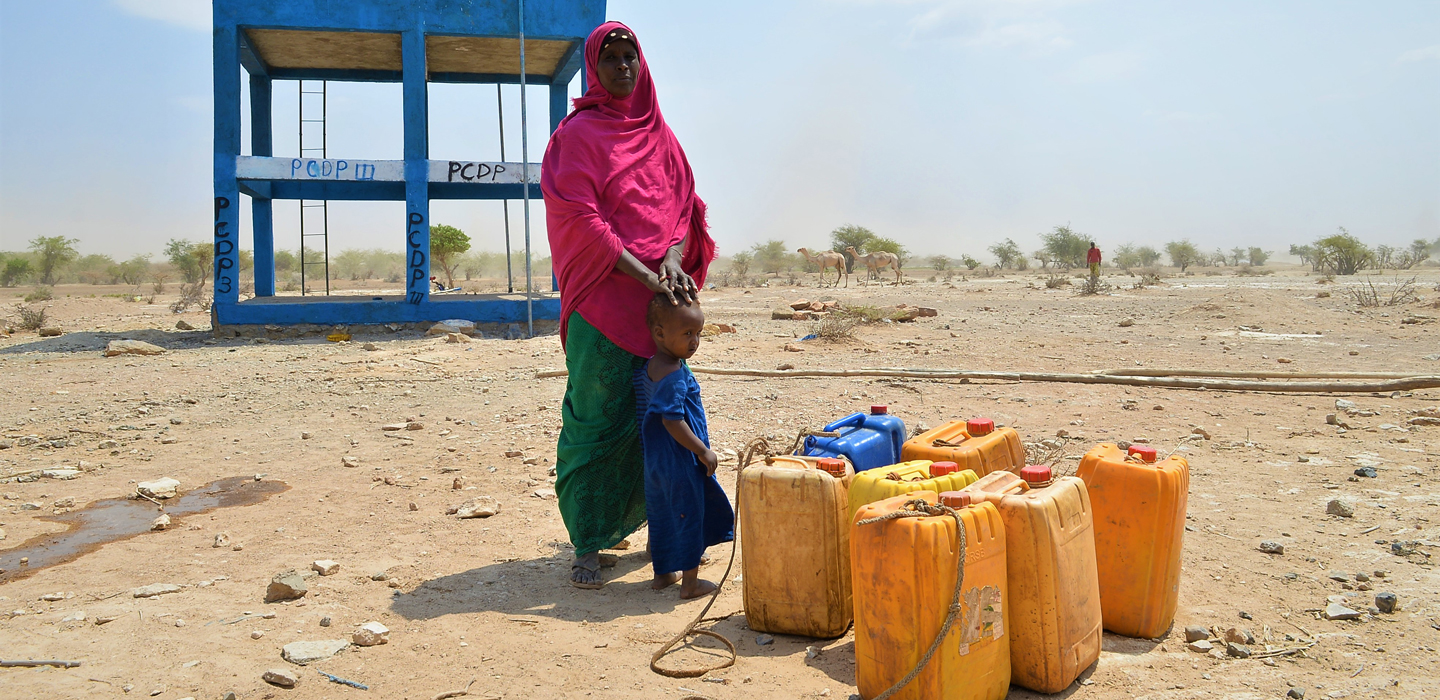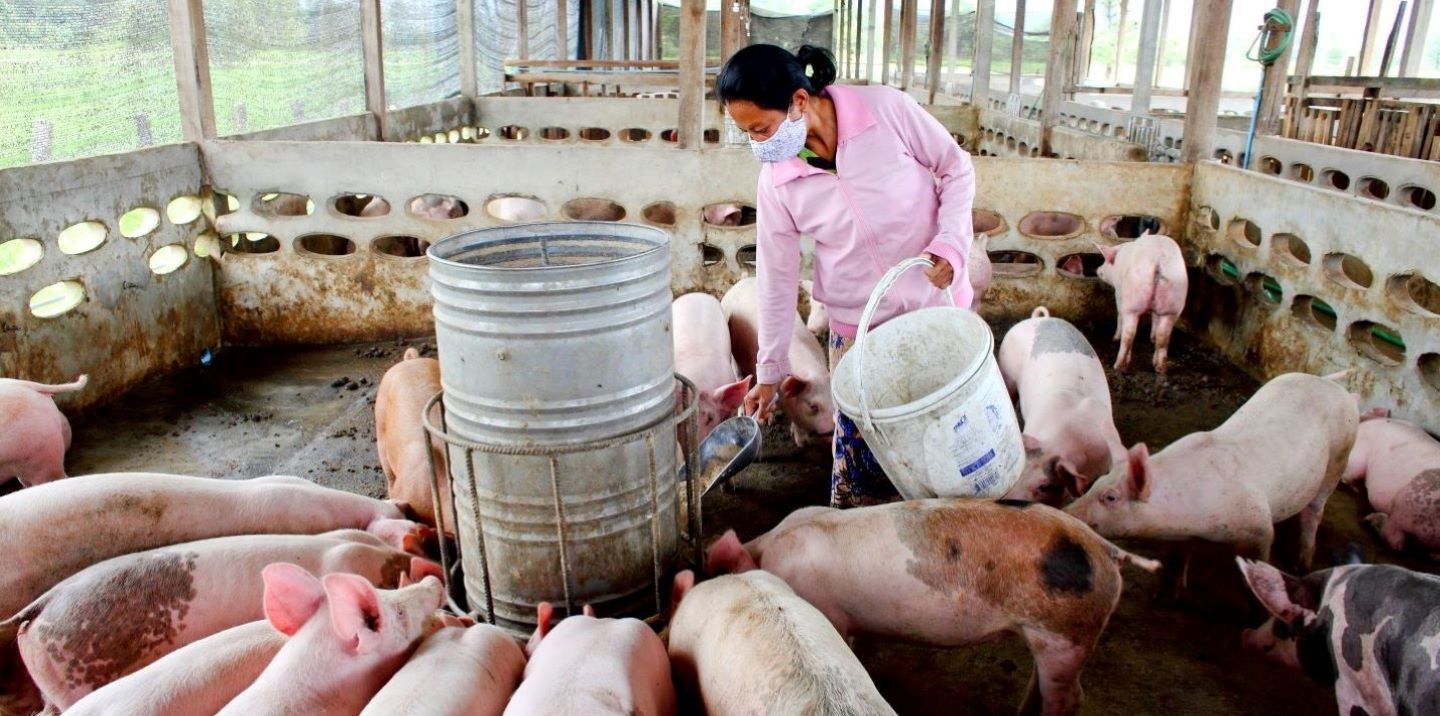Latest
Latest

Latest
Manual Submenu Topics
Search Results Filters
Search Results
Global Report on Food Crises: Acute hunger remains persistently high in 59 countries with 1 in 5 people assessed in need of critical urgent action
According to the latest Global Report on Food Crises (GRFC), nearly 282 million people in 59 countries and territories experienced high levels of acute hunger in 2023 - a worldwide increase of 24 million from the previous year. This rise was due to the report’s increased coverage of food crisis contexts as well as a sharp deterioration in food security, especially in the Gaza Strip and the Sudan.
Agriculture’s Indigenous trailblazers – Episode 57
On this episode, Indigenous leaders from Nepal, Mexico and Kenya weigh in on what it means to protect the planet while preserving their cultures, and fighting for the right to land, nutrition and education.
Global food crisis, poor nutrition and the effects of climate change need urgent action, says IFAD President
A global food crisis and the effects of climate change are taking a toll on those most vulnerable: millions of people – many of them small-scale farmers and their families – who are unable to afford a healthy diet. At this critical juncture, Alvaro Lario, President of IFAD, is visiting the Solomon Islands and Australia from 29 February to 8 March 2024 to collaborate on next-steps and to deepen IFAD’s strategic partnership with governments across the region.
Zero waste, full plates: winning with school meals - Episode 54
In this episode, we explore why we must pursue zero hunger and zero waste as joint goals. In particular, we look at how these efforts are crucial for children, who depend on nutritious diets for healthy development.
Sophie Grigson on how diversifying crops in Malawi cultivates sustainability and resilience
IFAD Recipes for Change chef Sophie Grigson travelled to Malawi to meet local small-scale farmers who are fighting back against climate change by diversifying their crops.
Recipes for Change: Nsima with chicken casserole and khobwe balls
Learn how to make a delicious and sustainable Malawian meal with these recipes collected from rural communities by Chef Sophie Grigson.
Experts and practitioners come together to improve nutrition outcomes in agricultural development in West and Central Africa
A regional knowledge and experience sharing workshop that addresses nutrition, rural development and food system transformation began today in Abidjan, Côte d'Ivoire. Improving food and nutrition security in West and Central Africa is crucial. It is estimated that 29.8% of the population of West Africa and 13.9% of the population of Central Africa are undernourished.
New UN report: 43.2 million people suffer from hunger in Latin America and the Caribbean, and the region has higher levels of overweight and obesity than the global estimate
The Regional Overview 2023 indicates that, despite halting the upward trend in the last period, hunger levels in the region remain above the 2019 figures prior to the outbreak of COVID-19. In addition, 8.6% of children under five years of age are overweight.
Investing in a better future: West and Central Africa
West and Central Africa is as intricate as it is vast. We sat down with Regional Director, Bernard Mwinyel Hien, to better understand the region’s strengths and challenges.
A healthy diet for a healthy people in Laos
IFAD is working to tackle malnutrition and food security in Laos. Find out how the Agriculture for Nutrition Programme has improved the diets of rural communities across northern parts of the country.
Everyone wins with school meals
Find out how small-scale farmers can get locally grown food to the children who need it, when they need it, while earning a decent income and supporting their families and communities.
More food with every drop
Water is key to food and agriculture, but with many parts of the world increasingly affected by water scarcity, it’s critical that we use it wisely. Luckily, small-scale farmers are up to the challenge.
Counting the cost of malnutrition - Episode 48
In this episode, we’re tackling malnutrition. In the spotlight we have an intriguing report on obesity in developing countries. Then we speak to IFAD's Lead Technical Specialist on Nutrition, Joyce Njoro, about the factors driving food inflation and its impact on access to healthy diets. Also in episode 48, Nadine Gbossa shares with us the key findings from this year's UN Food Systems Stocktaking Moment.
Why the Sustainable Development Goals matter: your questions answered
As countries meet to evaluate how much progress has been made towards the Sustainable Development Goals, find out more about these 17 objectives and why they’re important for the rural communities we work with.
We must do more to curb obesity and overweight in low- and middle-income countries
Overweight and obesity are on the rise in low- and middle-income countries. Here’s what we can do to help reverse this health crisis.
Five ways IFAD is making livestock more climate friendly
Countless rural people depend on livestock for livelihoods, nutrition and traditional ways of life. Supporting small-scale farmers to become even greener can strengthen food systems, preserve livelihoods and benefit our planet.
It’s time we treat the transformation of food systems like the emergency that it is
Our current food systems cannot keep up with the world’s growing population – as a result, millions face hunger. Now more than ever, countries must take action to transform how food gets from farm to plate.
UN Food Systems Summit +2 Stocktaking Moment
The fight against hunger has stalled according to the latest figures that the UN released last week, with 122 million more people suffering chronic malnourishment since 2019. The challenges to eradicate hunger and poverty are many. Yet, without financing for food systems transformation, the Sustainable Development Goals (SDGs) and climate targets will remain out of reach.
New analysis: Rising obesity rates in developing countries linked to high cost and limited availability of healthy foods
Steep price gaps between healthy and unhealthy foods, coupled with the unavailability of a variety of healthy foods, are driving rising obesity rates in both urban and rural areas of developing countries, according to a literature review released by IFAD.
As temperatures rise, so too does our need for diverse crops
Drought is the number one cause of agricultural production loss. This is why IFAD supports small-scale farmers as they grow crops that are resilient, but often neglected.
Agricultural programmes are key to food security and dietary diversity
Agricultural programmes are key to food security and dietary diversity in rural areas, we must continue investing in them.
New Zealand contributes US$3.57 million to IFAD to enhance resilience of Pacific island communities through climate smart agriculture
IFAD and the Government of New Zealand signed a NZD 5.75 million (USD 3.57 million) agreement to support Pacific communities to ensure sustainable access to water and healthy diets.
122 million more people pushed into hunger since 2019 due to multiple crises, reveals UN report
Over 122 million more people are facing hunger in the world since 2019 due to the pandemic and repeated weather shocks and conflicts, including the war in Ukraine, according to the latest State of Food Security and Nutrition in the World (SOFI) report published today jointly by five United Nations specialized agencies.
Zero Hunger: Are we on track to achieve it by 2030?
The SOFI 2023 report reveals that many people are still going hungry, with the world’s most vulnerable regions and people worst affected. We explore what is causing hunger today and how we can make real change, now.
From the field to our plates, rural people are transforming food systems
Our food systems need to change. Around the world, small-scale farmers, fishers and rural producers are already leading the transformation – here’s how.
EIB and IFAD deepen collaboration to strengthen food security, climate adaption and expedite project implementation
The European Investment Bank (EIB) and IFAD have today penned two agreements to further strengthen their cooperation in low- and middle-income countries worldwide, with a particular focus on Africa.
IFAD, GAFSP and WFP announce partnership to support Bhutan’s transition to commercially oriented agroecological farming
IFAD and the Royal Government of Bhutan have signed a loan and grant agreement amounting to US$30.94 million to improve food and nutrition security in Bhutan.
Appel à propositions: Programme mondial pour les petits producteurs agroécologiques et la transformation durable des systèmes alimentaires (GP-SAEP) – Burkina Faso
Le Burkina Faso a été sélectionné comme un des pays bénéficiaires pour la mise en œuvre du GP-SAEP en Afrique, en accord avec les bailleurs.
Appel à propositions: Programme mondial pour les petits producteurs agroécologiques et la transformation durable des systèmes alimentaires (GP-SAEP) – Madagascar
Le Madagascar a été sélectionné comme un des pays bénéficiaires pour la mise en œuvre du GP-SAEP en Afrique, en accord avec les bailleurs.
El FIDA promueve la inversión en negocios agrarios rurales de América Latina y el Caribe para asegurar el suministro mundial de alimentos
América Latina y el Caribe es un pilar clave para el suministro de alimentos a nivel mundial, así como para la mejora de la seguridad alimentaria y reducción de la pobreza, advirtió Rossana Polastri, Directora Regional del FIDA para dicha región durante el Foro PyMEs Agroalimentario Italia – América Latina, celebrado esta semana en el marco de la Feria MACFRUT en Rimini, Italia.
New IFAD - and GAFSP - funded project to scale up successful approaches to increasing food and nutrition security and increase small-scale farmers’ incomes in Lao PDR
IFAD and the Government of the Lao People’s Democratic Republic today signed an agreement for a nutrition-sensitive agriculture project to address food insecurity and malnutrition among the rural poor. The project will especially focus on vulnerable groups such as women, young people and people with disabilities.
IFAD substantially strengthens its investments in Somalia to help small-scale producers cope with climate shocks and food insecurity
As Somalia continues to experience a historic drought, pushing millions of Somalians into acute food insecurity, Alvaro Lario, President IFAD announced today during IFAD’s 46th session of the Governing Council that it will substantially strengthen its support to Somalia and resume its direct investments after loan arrears resulted in a three-decade long suspension.
Why insects are the next global superfood
IFAD helps rural small-scale farmers reduce emissions while adapting to climate change. Find out how rearing insects as human food and livestock feed can achieve these goals.
UN Report: 131 million people in Latin America and the Caribbean cannot access a healthy diet
The new United Nations report Overview of Food Security and Nutrition 2022 finds that 22.5% of the Latin America and the Caribbean population cannot afford a healthy diet. In the Caribbean this figure reaches 52%; in Mesoamerica, 27.8%; and in South America, 18.4%.
Fish farming brings prosperity in the Lao People's Democratic Republic
Lao farmers are working hand in hand with IFAD to change rural fortunes through fish farming.
Rural people in crisis: The latest news from IFAD
Rural people are still paying the highest price for the rise in food, fertilizer and fuel costs. The Crisis Response Initiative was set up as part of IFAD's ongoing efforts to build rural people's resilience to these shocks. Here are selected highlights on the crisis from our teams in the field.
Saving the Amazon: The story of the indigenous women fighting climate change
In the heart of the Peruvian Amazon, a group of indigenous women are fighting climate change through reforestation and ancestral farming techniques.
Cooking at the top of the world: A family in Nepal share their story of climate resilience with Meteorologist Clare Nasir
Meteorologist Clare Nasir travels to Nepal where she shares a homecooked meal with a local family and discovers how rural farming communities are adapting to the threat of climate change.
Small-scale farmers are vital to feeding West and Central Africa and transforming food systems
On 16 November 2022, IFAD will convene policy-makers, development practitioners, rural producers and farmers organizations at its second Farmers Forum in Grand-Bassam, Côte d’Ivoire to explore opportunities to strengthen partnerships between them. Together, they can work jointly for sustainable transformation of food systems and food security.
Adapt or starve – UN Agricultural Fund calls for urgent climate finance for small-scale farmers
With the negative impacts of climate change becoming more frequent and severe, IFAD is calling for urgent and increased financing to support hundreds of millions of small-scale farmers adapt to climate change.
What’s on the menu in 2050?
What’s on the menu in 2050? For World Food Day, we contemplate what our plates might look like in the future and explore how the world’s small-scale farmers are revolutionizing what we eat.
You are what you eat: Indigenous youths breathe new life into ancient traditions
Young members of indigenous communities are working to reverse centuries of dispossession and preserve their way of life, including their food heritage.
Water brings life to rural people
Irrigation brings water to the world's poorest rural people in the right quantities and when they need it, helping farmers adapt to climate pattern shifts.
Tackling food loss for sustainable food systems
Reducing food losses makes food systems more sustainable. Although the exact causes are different for every crop and in every country, there are plenty of avenues to prevent, detect, and reverse these losses.
Fighting Climate Change in South Asia – Episode 36
From chefs in India to fisheries in Maldives, we examine how the relationship between agriculture and climate change is affecting South Asia. We also reflect on 75 years of independence in India and Pakistan and learn about IFAD’s work in Bhutan and Maldives, and so much more in this bumper episode.
Good Nutrition Better Lives, Focus on Africa - Episode 34
In Africa, almost 800 million people are facing food insecurity. This situation is made worse by a triple crisis - COVID-19, climate change, and conflict. In this podcast, our team take us on a journey through the nutrition landscape for small-scale farmers across Africa.
The latest food security and nutrition report paints a grim picture. Three IFAD experts react to the shocking figures
The latest SOFI report shows that rather than moving towards zero hunger, evermore people are hungry. On the back of these disheartening results, three IFAD experts give their reactions to the report.
Building Resilience in a Time of Famine – Episode 33
20 million people in the Horn of Africa are at risk of starvation, largely due to a four-year drought making the region the driest it’s been in forty years. Dr Joseph Awange and IFAD’s Satu Santala discuss the root causes of famine and the solutions we can put in place.
Take a 360° tour of a small, thriving pig farm in the green hills of Lao PDR
In the tiny village of Manh, nestled in the green uplands of Lao, agricultural production groups are coming together to develop their businesses and learn new techniques. For Boun Tham, groups like these made all the difference for his pig farm.
Insects to Feed the World – Episode 32
This month's episode focuses on the use of insects to feed the world – both as food for humans and feed for livestock.
